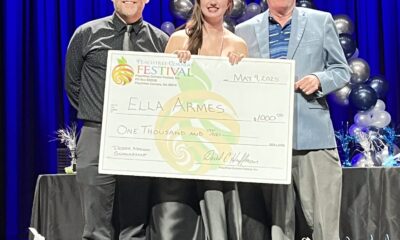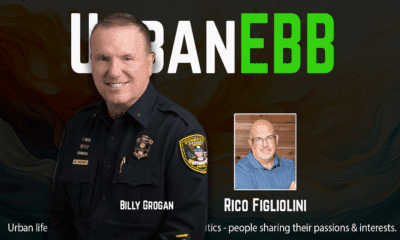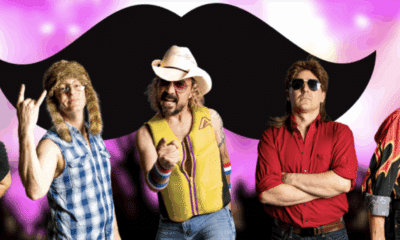Business
Expanding Horizons: How KGM Technologies Balances Defense, Medical, and Precision Manufacturing
Published
2 months agoon
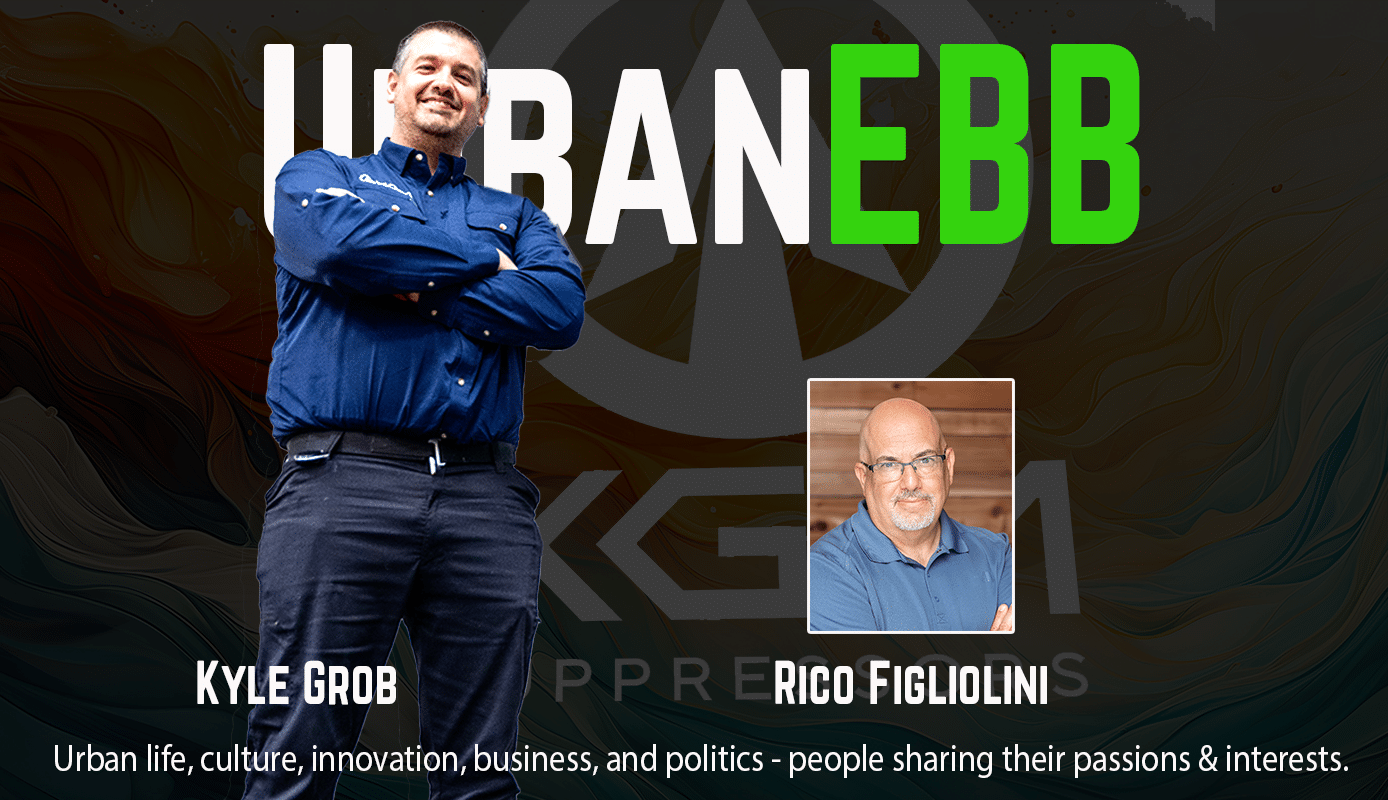
Kyle Grob on innovation, diversification, and the future of skilled trades
In this episode of UrbanEBB, host Rico Figliolini speaks with Kyle Grob, CEO and founder of Peachtree Corners-based KGM Technologies, a precision manufacturing company specializing in firearm suppressors and expanding into medical device production. Kyle shares insights on growing a business during COVID-19, navigating ATF regulations, and how Georgia fosters innovation in manufacturing.
The conversation also explores the future of skilled trades, the challenges of hiring motivated workers, and KGM’s commitment to workforce development through partnerships with vocational schools. Whether you’re interested in business growth, advanced manufacturing, or the evolving job market, this episode is packed with valuable insights.
Key Takeaways & Highlights:
- Adapting to Change – How KGM transitioned from automotive and defense contracts to firearm suppressor manufacturing and medical devices.
- The Impact of ATF Regulations – Digital processing has drastically reduced wait times for suppressor purchases.
- Workforce Challenges – The decline of skilled trades and the difficulty of hiring motivated employees in manufacturing.
- Medical Technology Expansion – KGM’s role in producing stroke rehabilitation devices and scaling medical manufacturing.
- Networking & Diversification – The importance of industry connections in finding new opportunities.
- The Value of Trade Schools – How partnerships with Maxwell High School and other vocational programs are shaping the next generation of skilled workers.
- Patents & Innovation – KGM’s goal of filing at least one new patent every year.
- The Role of Suppressors – Their use in law enforcement, hunting, and protecting hearing health.
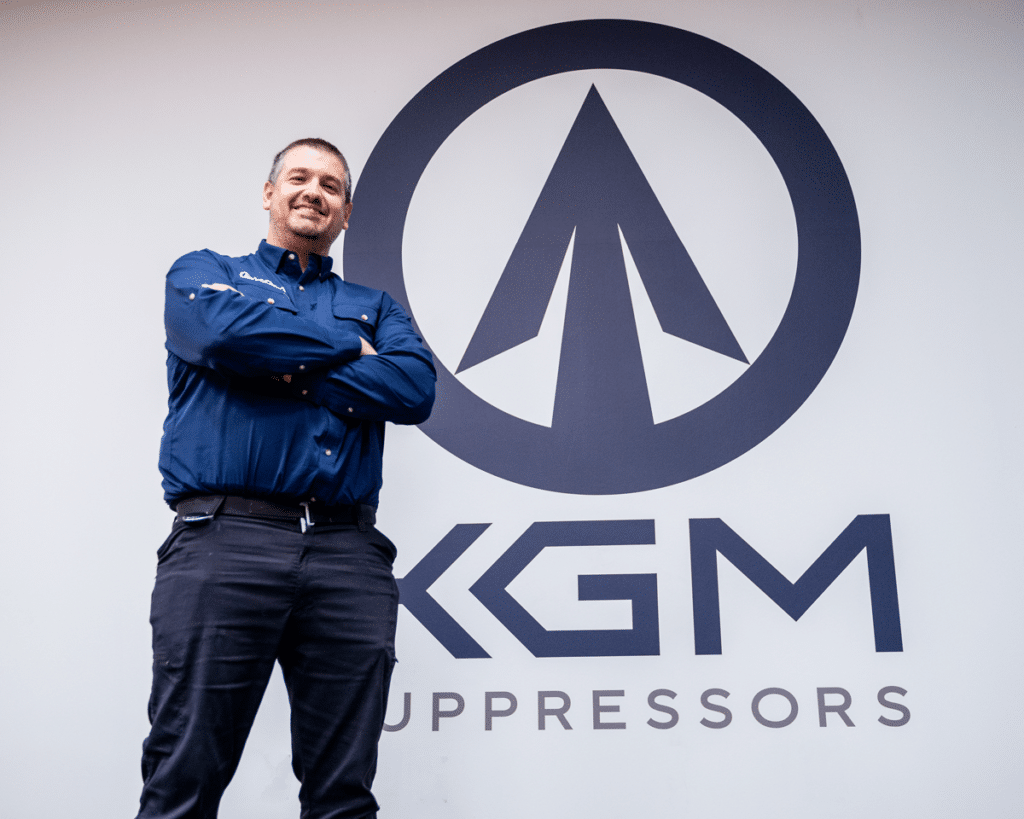
Transcript:
00:00:01 – Rico Figliolini
Hi, everyone. This is Rico Figliolini, host of Urban Ebb here in the city of Peachtree Corners, just north of Atlanta. I appreciate you joining us. We have a great guest today, a Peachtree Corners-based business, very different and unique industry, Kyle Grob. Appreciate you being with me, Kyle.
00:00:18 – Kyle Grob
Oh, thank you for having me. Glad to be here.
00:00:19 – Rico Figliolini
It’s going to be a good discussion on a bit of company, a bit of work, and manpower, the lack of. But before we get into that, I just want to say thank you to two of our sponsors, EV Remodeling, Inc., and the owner, Eli, who lives here in Peachtree Corners also. His family does. And he does great work from design to build. Whole house renovation, or if you need an extension on the house, he’s the guy to look for. They’ve done over 260 such renovation work. So check them out, evremodelinginc.com. And then also Vox Pop Uli also family owned, also in Peachtree Corners. And they’re a company that if you have a brand and if you’re a business and you need to bring that brand to life, pretty much you can do it. 1,600 vehicle wraps I think this past year anything you can want, imprinted, embroidered, silk screen, whatever it is. If you have a logo and you want it on an object of any sort, challenge them. I can’t tell you how many different things they’ve put logos on. So all great stuff. Check them out, voxpopuli.com, where you can find them. So, now that I’ve taken care of the sponsors who support us for our journalism and podcasts. Kyle is the founder and currently CEO of KGM Technology. Yeah. So, based in Peachtree Corners, tell us just quickly a little bit about what the company is.
00:01:42 – Kyle Grob
So, the company started in 2012 as a kind of a fabrication, job shop, machining fabrication. And we kind of evolved out of the automotive space and got into the defense world and slowly grew over years. And then we moved into this building in 2019 and have been growing ever since.
00:02:03 – Rico Figliolini
2019, COVID.
00:02:05 – Kyle Grob
Yeah, so COVID was actually very good for us. It was wide open, running multiple shifts. While many businesses were shut down, we couldn’t hire enough people, we couldn’t build enough products.
00:02:17 – Rico Figliolini
We’ll get into that because it may be a bit of what you’re going on now. So your business is military suppressors, which is the biggest part. You told me once at one point when I took a tour earlier, a week ago, you said we’re precision manufacturers.
00:02:34 – Kyle Grob
Yeah, so the back end, the wholeness of the company is precision manufacturing. Our forward-facing product is suppressors. That’s mainly what we sell to commercial, law enforcement, military, overseas, all kinds of stuff like that. But we’re in all kinds of stuff. Contract manufacturing, medical device manufacturing and supply, all the way down to machining and research and development. And it’s just a little bit of everything. But again, forward facing is the product line, yes.
00:03:02 – Rico Figliolini
Sure. And you’ve done this since 2019, right? Actually before that.
00:03:07 – Kyle Grob
Well, no, no. Yeah. So we started suppressors in 2015, 2016. And then, but it was kind of a side product to what we were doing. Really grew in 2019. And then really kind of just kept growing through COVID. And this is kind of where we are now.
00:03:22 – Rico Figliolini
Interesting. So your family is steeped in military? In all branches, I guess?
00:03:25 – Kyle Grob
Yeah. Army and Navy.
00:03:27 – Rico Figliolini
Army and Navy. And you hire veterans?
00:03:29 – Kyle Grob
We hire a lot of veterans. We have a lot of veterans that work for us. I try to hire as many as we can. They make very good employees. But, you know, it could probably be a whole nother podcast in itself, what happens to veterans when they come back from service. And so we try to search them out and give people a chance.
00:03:34 – Rico Figliolini
Getting involved in this type of market since, you know, you started, has it changed in the way you do business?
00:04:03 – Kyle Grob
Yeah, because we are so highly regulated from, you know, the ATF regulates us pretty heavily. The ability for consumers to essentially purchase the product and all the paperwork and background check that goes in it has evolved since we started. It used to be nine months, 12, 15 months to get a product. So you buy it, wait for your paperwork for a year or more. You’d almost forget about the product. And then all of a sudden it’d pop up one day. Well, last year, everything went digital. And so now everything’s digital. You go from months or years wait time to days, hours, weeks.
00:04:38 – Rico Figliolini
So you can order this stuff online and get it shipped to you?
00:04:41 – Kyle Grob
No, so you can’t really ship it to your house. So you still have to go to a dealer or go like that. You’re still submitting fingerprints. You’re still submitting your photos. But the process is now all digitized. There’s no manual entry on the ATF side. Everything goes through much faster. And again, we’ve seen, you know, three hour wait times. Where you fill out your paperwork, go to a long lunch and all of a sudden your suppressor is approved.
00:05:04 – Rico Figliolini
So if you have a gun permit or a carry permit, does that make it easy?
00:05:08 – Kyle Grob
It doesn’t really because it’s a completely separate background check. So this, every suppressor you purchase is its own background check. So you treat it like a firearm purchase every single time, except it goes through a kind of a different, it goes through the FBI on the NIC side, which is their background check service. But it goes through separate checking on the ATF side as well. So it is a little bit more involved process than buying a handgun or a rifle or something like that. But similar agencies touch it, I guess.
00:05:38 – Rico Figliolini
Okay. This being the state of Georgia, other states have different ways of doing things. You’ve been to trade shows. You’re involved in the industry a bit. Do you see Georgia being a good place to do business here in this market?
00:05:52 – Kyle Grob
Georgia is a very friendly state. And even just manufacturing in general, you’ve seen all the companies that have moved here. You have, you know, most major automotive companies are either building or about to build here. You got SK batteries. You have some big companies that are moving to Georgia. And then film. I mean, film is massive here now with all the tax breaks. And so you see a lot of stuff coming to Georgia from an industry standpoint, but it’s also very firearms friendly. There’s a lot of big companies here in Georgia. You have Glock here in Georgia. You have Daniel Defense. You have a lot of really big companies. I think Remington’s got a place here. So it is very, you know, Georgia, Alabama, Tennessee, South Carolina. There’s a lot of very friendly states when it comes to manufacturing and firearms.
00:06:35 – Rico Figliolini
So how do you go about selling your product then? I mean, if you go to trade shows, RFPs?
00:06:40 – Kyle Grob
So on the military side, it’s more RFPs, it’s more contract basis. We partner with a lot of firearms companies because a lot of submissions for weapons systems require, you know, we’re viewed as kind of an add-on to a weapon system. Yeah, it’s an accessory. And then on the law enforcement side, we go demos, we have dealers. And then on the commercial side, we have distributors that distribute to dealers. And then we have dealers that essentially are walk-in brick and mortar stores. And we sell directly to them as well.
00:07:07 – Rico Figliolini
So for most people that may not know, why would someone want a suppressor on the gun? Why would a police officer, let’s say a SWAT team, want to suppress it? What makes it?
00:07:17 – Kyle Grob
Really the biggest one is health and safety. It’s the biggest one. So from an officer-involved shooting, or say if he shoots without ear protection, every shot is permanent hearing damage. So if he shoots one in his entire career, he’s permanent hearing damage, he’s on disability from an auditory standpoint. You look at, you know, what you could do, and then you look at, you know, God forbid all the school shootings we’ve had and school resource. When you shoot inside of a building, it’s even magnified. So it’s very, very loud in general, and then you put it inside of a building and it gets worse. So there’s been cases where you’ve seen lawsuits where, you know, a SWAT team or someone’s gone into a house or a building and essentially, you know, saved someone, but they discharged their short barrel rifle inside the house. And then everyone that’s not wearing ear protection, i.e. the family, they’re all deaf or hearing damage, and they end up suing the city. And we see it a lot. And so from a health and safety standpoint, there’s that. You could look at accuracy. And then you look at, on the hunting side of being more courteous to neighbors. It allows you to hunt closer to, you know, other people and stuff like that. Yeah, so there’s so many things that add to it. And then you add, you know, on the military side, it helps with being able to, you know, hide your location and just be more effective. Suppress flash and stuff like that. So a myriad of uses, but really the bigger one is the health and safety side of things.
00:08:40 – Rico Figliolini
I was speaking to a person today that on his old farm he used to shoot his rifle and stuff. And he told me he said, this ear? Pretty much gone. He says now hearing aid. Because he didn’t think that he needed a, you know plugs or anything. A suppressor probably would have helped him. Well at least the plugs might have helped a little bit. But no one thinks about that.
00:08:59 – Kyle Grob
You don’t, you don’t. And you look at the law enforcement side and kind of the heat of moment, you don’t think about it. It’s not something, you’re either fighting for your life or, you know, your split moment decision. Like you don’t think about putting your plug on or throwing a plug in or something like that. It’s a split second decision. So with suppressors, you can really mitigate a lot of that risk. Now, does it make it the Hollywood movie side? No. The only thing that gets even close to that is 22. And it’s because the subsonic is very quiet like that. Any centerfire rifle cartridge you’re never going to get away from supersonic crack. It’s only so quiet you can get it. It is a suppressor, not a silencer. And that’s a probably a very heated topic. It’s a movie thing, yes. But in practical application they do a lot of work for the size of the product and what you use it for.
00:09:50 – Rico Figliolini
So now going from suppressors to the medical industry. You know when you showed me around and you talked to me about mechanical therapeutic systems for a company you’re doing work for inside the perimeter. That you almost had to double the size of your floor space, essentially.
00:10:07 – Kyle Grob
Yeah, so it’s kind of an interesting story. We go back to, we’re a precision manufacturing company. We make contract stuff. We do defense. We do a little bit of everything. And it was kind of a friend of a friend. Their business was scaling and really needed help scaling the manufacturing side of their product. And it was really a right place, right time. It kind of fit in our warehouse. While it’s not exactly what we make, precision assembly, scaling, manufacturing, supply chain, logistics, all that stuff. That’s what we do every day. So I’m just building something a little different versus what I have been building. So it was a great opportunity. Again, the right side of the perimeter is Atlanta company. And it was just a really good right place, right time. Good fit for what they were looking for. Good fit for us on the diversification side. So it’s just it really worked and we’re growing weekly. Yeah, we’re blowing walls down and yeah we’ve tripled the space twice now since we yarded in like October of last year. So it’s very very quick.
00:11:07 – Rico Figliolini
When I walked through and you gave me the tour, I mean there were quite a few people just in that place doing the assemblage. I think you even told me, you said well, how far down can you? Millionth of an inch? Precision?
00:11:21 – Kyle Grob
Yeah, so it’s like our EDMs and some of our stuff, we calculate microns, millionth of an inch.
00:11:27 – Rico Figliolini
So that’s an industry, obviously, you want to get more into.
00:11:30 – Kyle Grob
Yeah, it is. It was interesting. I had kind of heard about the medical manufacturing side, and the more we dug into it, the more I realized how many companies like the company we’re helping are out there. And they have a great idea, a great concept, but they’re either doctors or they’re pcs or biomedical. You know they’ve developed great product but they don’t know the manufacturing side or they don’t know how to scale the logistics. Yes, scaling. So it’s, there’s so many good ideas that maybe never ever come to market or never could reach the potential they could because they don’t know the back end. They don’t know the manufacturing, they don’t know how to. Make five of something is very different than making 500, is very different than making 5,000. And it’s just a different skill set. It’s a different knowledge base. And we’re very good at it. And it was a really, really good fit. And it’s something we believe in. We believe in the medical stuff as much as we believe in the defense. Every day we’re building something to help someone else.
00:12:29 – Rico Figliolini
And to get people to understand a little bit, this particular thing was a therapeutic.
00:12:34 – Kyle Grob
Yeah it’s a, without going into too much detail, it’s a stroke therapy device. It’s used for rehab of stroke patients so that they can actually rehab at home versus having to go into a therapy office. And so it’s just grown immensely and that’s, the product’s done well.
00:12:50 – Rico Figliolini
So how do you go after that market? You know, so if another business person, you know, when you, when you diversify, it’s not easy, right? You’re all set in one way. You have 100% of the direction going one way. How do you do that? If another company was listening to this, how would they be able to diversify? So what challenges did you see?
00:13:10 – Kyle Grob
The challenges, like I said, we very much stumbled into this one. Not saying we weren’t looking, and that’s kind of how we did it, but honestly, it was network. And the guy that owns this company, owns another company and he’s an investment group with another other. So a lot of it is networking and being open and willing to take on a challenge that you may not. Be like, oh I have no business in that, well if you’re good at what you do over here and you can see you can cross the lines you can compare, you’d be surprised what you can do. And then you go to the trade shows. Like there are medical device trade shows. Go to those and walk around and say, hey I’m a manufacturer, or I’m this, I’m looking at getting into this market. Do you have a need for X, what I do? Putting yourself out there and going like, look, this is out of my market, but I’m good at this. I would like to try this and just be open and willing to, A, to fail because you’re going to fail more than you succeed, but be willing to try. And that’s the big thing was the leap. Like we took a leap to do this. I had a good feeling that we could do it. But at the end of the day, like you still have to take the leap.
00:14:17 – Rico Figliolini
You’re a CEO now and you were a founder, but you were on the board. You were chairman of the board?
00:14:22 – Kyle Grob
No, no, not chair on the board. I was more on the technical side. So as we were growing the business, I was CTO. And so we were heading kind of down a different path and it was just a the board kind of wanted to see a different change in the way the company was run. And again, my background, why I said, I wasn’t running the day to day, most more on the manufacturing side and technology and patents and stuff like that. And so, board made a shift and I took back over the company. You know, I go from running it many years ago, to running again. Which happens a lot in small companies. And it was a, we wanted to head down the manufacturing path and that’s what I know. So we made a change and I stepped back in last year and been riding the train ever since.
00:15:11 – Rico Figliolini
Good, good. It’s great to have a company expanding and doing well in Peachtree Corners.
00:15:13 – Kyle Grob
Yeah, yeah. Happy to be here.
00:15:17 – Rico Figliolini
Being an employer of veterans, being steeped in family military and stuff, you do outreach, you do community fundraising in that field, in that area.
00:15:29 – Kyle Grob
Yeah, we do, again, more in the defense space, but we do some charity work with several organizations. And again, we donate product. We do stuff for raffles and fundraisers, and we do a lot of stuff like that. Because I really do believe in giving back to the market and giving back to those people. So it’s something we do a decent amount of. I would like to do more this year. That’s kind of what we’re trying to find some other organizations that do stuff with. But we try to do as much as we can. There’s one group, and I’ll be happy to say the name, but Guardian Group. And it’s Guardian Long Range. And they have a precision rifle series. It’s a shooting competition, but it’s for fun. And they have four or five stops all around the U.S. And we outfitted all their rifles that they let people use for trials and stuff like that. We outfitted all the suppressors. So maybe their first competition experience is with a suppressed rifle. So we do stuff with them every year. A guy named Gary is the one that founded that. So great group. But he has a lot of, most of his stuff is for foster kids. He’s a foster kid himself, and he does, every single dime of that goes right into helping foster kids, helping place foster kids, and stuff like that.
00:16:41 – Rico Figliolini
Wow, that is neat. That is cool. I didn’t think about that. So, you know, leadership, company, what comes to mind when you’re, you know, when you’re looking ahead for the next few years?
00:16:55 – Kyle Grob
Really, my biggest push is diversification. Is trying to grow the medical side for sure, grow my contract manufacturing, and really try to build some stable streams around. Everyone knows the firearms industry goes up and down. It’s always cyclical. And so trying to build a larger company where I can have some overlying pathways and diversify and stuff like that so that I can clip the waves and be able to grow the business without relying as much on a very cyclical market. So that’s really the big try. We’re pushing a lot of technology. We’re trying for a patent a year, or a patent every two years. Yeah, we’re four deep already, with two more applied. So we do a lot on the patent side, a lot on the testing and development side. But yeah, growing the medical is really the big one I’m focusing on in the next year or so.
00:17:45 – Rico Figliolini
Yeah, one of the things you have in the house is a firearm range. You told me, and you can put a .50 caliber?
00:17:52 – Kyle Grob
Yeah, so we shoot up to .50 caliber indoors. Yeah, so we have a, it’s a lab as much as it is a range where we can do all of our instrumentation and we develop based on data. So we use it. We shoot it in almost every single day. We’re doing testing and development. We do, you know, demos for customers and stuff like that. But yeah, we’ve, pretty extensive room back there.
00:17:54 – Rico Figliolini
Yes, it’s amazing. Small. Smaller than this conference room.
00:17:58 – Kyle Grob
Yeah, yeah. It’s not, it’s not very big. It’s not a big long range, but it’s heavily instrumented.
00:18:22 – Rico Figliolini
I can’t even imagine shooting a 50 caliber in there, how that would sound.
00:18:25 – Kyle Grob
Oh it, unsuppressed it’ll lift the ceiling tiles. It’ll pressurize the room, yeah so.
00:18:31 – Rico Figliolini
So lots of work yeah expanding you’re looking towards the future and stuff. One of the biggest problems I guess, and we’re going to go right into that is finding employees. Finding skilled employees or motivated employees. Maybe not even skilled, maybe motivated. How does that?
00:18:49 – Kyle Grob
I’ll trade motivation for skill. I’ll trade because what we do is kind of unique. Even on the manufacturing side, we have very nice machines. We do things to a very, very high tolerance. And even with machining background, we’ve found that some people have either preconceived notions or bad habits or stuff like that. We’re getting to the point now where I would rather have someone that has a little bit of mechanical aptitude, some basic knowledge, or someone out of trade school, and I’d rather just teach them. And finding someone that’s willing, even on the medical side, I’d rather have someone come in that wants to just come in and work every single day, take pride in the product they put out. You don’t have to even be that knowledgeable about what we do. I’ll train you and do whatever we need to do, but someone to actually come in and do it is one of the biggest struggles we find. We’ve had you know, multiple staffing agencies and all stuff like that. And we have people, we had some people the other day that came in for four hours, just left during lunch, never came back. And yeah, just it’s, the workforce is, it’s been disappointing, I guess. And seeing, especially on the technical side, I mean, the craves, the trades, the crafts, like a lot of that stuff is dying. Like people are not, you look in the like tool and dye. Oh, that’s enough. That’s no, so most people don’t know how injection mold stuff works and like that. The craftsmen that build those tools, that is a dying art. There’s only one or two schools in the U.S. that do it. I don’t know any of those guys that make less than six figures. None of them. And, you know, you look at plumbers and electricians and welders. I come from a welding background. I knew plenty of welders in the nuclear field that have multiple houses in multiple states. They never wanted for money. They always had plenty of money because it’s such a very small niche thing and there’s not many people that go into it. And so what we found with the growing, we’ve had to do a lot of automation because we cannot get the people. So we’re putting robotics in, we’re putting automation system in just because I have a certain number of parts that I have to make a day and we’re not hitting the numbers with the people we have. And it’s really hard to find people that want to come in and work. And we have a climate control facility, the nicest machines, our oldest machine, CNC machine is from 2018. It’s the oldest machine we have in the whole building. Most stuff is within two years old. So we work highest machines, highest quality product this, and just having someone come in every single day and want to work. It’s been very difficult to find. And that’s it. It’s been. I guess upsetting a little bit of how hard it’s been.
00:21:25 – Rico Figliolini
I think we talked a little bit about that when I was here last time. And you’re on the board of Maxwell High School Technical, I think?
00:21:33 – Kyle Grob
Yeah, so Maxwell High School, it’s a vocational high school, essentially. It’s a trade high school. They’re over in Lawrenceville, I think. So high school kids in Gwinnett County, if they want to go to that program, I want to say it’s junior and senior year. If they are heading down that path, they essentially will get bused to Maxwell for half their day and come back. And they have machining and welding, hvac, nursing, culinary, carpentry, all kinds of stuff. And you can get some vocational certificates in high school over there. And so I sit on the board over there and I help advise of curriculum of what do kids need to learn if they want to head down this path? They want to head down, I don’t care if it’s machining or engineering or anything like that. Like what are basic skills. I mean we have people that come in their 20s that don’t know what a screwdriver is. I mean, it’s like, that sounds crazy, but until you meet people and you know, I don’t think the school systems are doing people favors. And so I’ve been really trying to help where I can and you know, try to like, look, let’s try to teach people young. I didn’t have that when I was in school. Like I had to learn everything the hard way.
00:22:42 – Rico Figliolini
Yeah. And you were talking about this. You started at 15, I think.
00:22:46 – Kyle Grob
Yeah. So I started machining in, you know, high school. I started welding at 12. I grew up on a farm.
00:22:51 – Rico Figliolini
12.
00:22:52 – Kyle Grob
And so it’s one of those that, you know, I had a very good upbringing. Like I was shown, my great grandfather was a master carpenter. Great uncle was a master machinist. Like I grew up in a trade family. And so like, I got exposed to that stuff very, very young. I was very lucky. A lot of people aren’t like that. Most of their parents are maybe in IT or finance, and they want to go be a machinist or be a welder or something like that. So there’s no, you know, maybe the parents don’t know how to get into that. And so the kids find out at a later date. Well, what if they could start finding out in high school? They start learning, you know, your STEM schools, your vocational schools, that kind of stuff.
00:23:31 – Rico Figliolini
I think like Paul Duke STEM, for example, they’re a hybrid school, right? So it’s, you have kids that are technically STEM kids, but then you also have other kids who are learning CAD and 3D printing and stuff like that. So more of technical stuff that they can actually leave the high school knowing that stuff and then find the job doing it. So that’s the only place I know that’s like that, short of the Gwinnett Science and Technology High School. I forget where that is now. But when I grew up, I mean, granted this, you know, my high school was 50 years ago. Half a century. That’s horrible. Okay. But when I grew up, we had shop classes. So metal class, printing class. In fact, I took printing. I should have taken the auto class because that really works now. But I took printing. And when I was going to college, I worked at the print shop right around the corner. So I made good cash because there weren’t that many people that knew it. And I literally could run two or three presses at the same time. They were small presses. But there were even people back then that would be like, well, what are you in a rush for? Why are you doing what you’re doing? And I’m like, because I’m getting bored running this long run in this one press. I could do this other one while this is going. So it is to some degree motivation, some degree technical knowledge.
00:24:50 – Kyle Grob
Yeah, but a lot of it still drive. Strive.
00:24:53 – Rico Figliolini
Yes. For sure. To be able to make that money. I mean, most parents think, well, I don’t know about most parents. What I think is people got into this four-year college degree thing. Which is way more expensive now than it used to be. And you’re looking at people, who was it, the head of OpenAI, was essentially saying you don’t have to go, the head of NVIDIA was. It was like you used to want to be able to send your kid to do computer programming. And he’s essentially saying, you know, you don’t need to be doing that anymore because it can be done in plain english on OpenAI, essentially. So where are they going?
00:25:36 – Kyle Grob
Good question.
00:25:37 – Rico Figliolini
I see signing bonuses for 10 grand on HVAC here in the metro area sometimes. How do you solve that? I mean, you’re on the board of the high school, but how do you?
00:25:48 – Kyle Grob
Yeah, but it’s one high school. And it’s one high school in a state. And I know there’s other vocational schools in other states. A lot of it just seems to be the state has to look at it holistically in the whole state. And go like, look, this is worth putting money into. This is not football. This is not baseball. This is not your support sports like that. It is an alternative path that is not your commonplace. So it really has to come. And I’ll give the state of Georgia and even Gwinnett County very, very good accolades of, you know, taking the leap on that school and funding that program and pushing it and keeping to push it and grow it. And so, but it has to start at a state level. The state has to be able to go,this is worth putting money into to future. Because you have to do it now for the kids that are coming up. You know if you want to get, if you want that kid that’s in elementary school right now to look at that that program, it already has to be in place so that he will know about he or she will know about it by the time they get into middle school and then by the time they get in high school they can apply for it.
00:26:50 – Rico Figliolini
I think the stigma, but the stigma needs to go away also, right? Because there’s a stigma of like, you’re not going to college?
00:26:57 – Kyle Grob
Yeah. You’re not going to amount to anything if you don’t go to get a four-year degree.
00:27:02 – Rico Figliolini
And it used to be okay if you knew computer engineering and programming. You’d come out of school. Some people, some leaders in that industry would say, don’t waste the four years. We’ll train you during the four years.
00:27:13 – Kyle Grob
Come work for me now.
00:27:15 – Rico Figliolini
Yeah, yeah. I mean, Google used to do that. Some of these other companies started doing away with four-year degree minimums to be able to do that because they weren’t finding what they needed. But now they’re finding it in a different way. But I agree with you. Funding that type of stuff makes a whole lot of sense but it’s taking that stigma away to say, you know.
00:27:33 – Kyle Grob
It’s okay to be a plumber. It’s okay to be a carpenter. It’s okay to, you know wash cars. Because I have a friend of mine who started washing cars then he managed a car wash. Now he owns six of them.
00:27:46 – Rico Figliolini
Yeah again, it’s a bit of drive.
00:27:50 – Kyle Grob
Yeah, but he had the drive and he knew that he had to start somewhere. And I think a lot of people are scared of starting at the bottom of something. And but, it’s one of those that like they’re all these crafts all these trades are very inviting they want people. They’re begging for people to come work.
00:28:06 – Rico Figliolini
You know what? You don’t you don’t need to drive as much. You need to be able to, I think take pride in what you do. You don’t need to go into something and say, well, I want to start my own business because some people don’t want to. They want to do a nine-to-five. That’s fine. They can make lots of money doing nine-to-five.
00:28:22 – Kyle Grob
They can make good money doing nine-to-five, yeah.
00:28:25 – Rico Figliolini
Check out the company. Alright, so we’ve sort of come to the end of our interview. Is there anything I’ve left out that we haven’t talked about that do you think you should mention?
00:28:37 – Kyle Grob
No, I said I can go on for days about the labor and trade schools and stuff like that. But no, I said this. It’s kind of a little bit of my story and kind of where we’ve come from, where we’re heading and what I’m passionate about individually and what I want to do for the community.
00:28:52 – Rico Figliolini
Excellent. So if you all want to find out about the company, check out the website. I’ll have the, actually, what is the website?
00:28:58 – Kyle Grob
It’s kgm-tech.com.
00:29:01 – Rico Figliolini
I’ll have the link in the show notes as well. If you have any questions for Kyle, just email him off the website. Or leave your comments in the, you know, depending if you’re watching this on Facebook or Twitter or YouTube, or if you’re watching this on audio podcast, just send the comments to me and I’ll forward it to Kyle. So, but thank you everyone. Thank you to our sponsors as well, to Vox Pop Uli and to EV Remodeling Inc. Appreciate you all being with us. Share this UrbanEbb podcast with your friends. And if you look, if you know anyone that’s looking to get into the technical field, Kyle could be a good mentor probably. I would think. Thank you Kyle.
00:29:41 – Kyle Grob
Yeah. Thank you sir.
00:29:41 – Rico Figliolini
I appreciate it. Thank you guys
Related
Business
The City and PCBA Welcome Ride Lounge with Ribbon Cutting Ceremony
Published
1 day agoon
June 4, 2025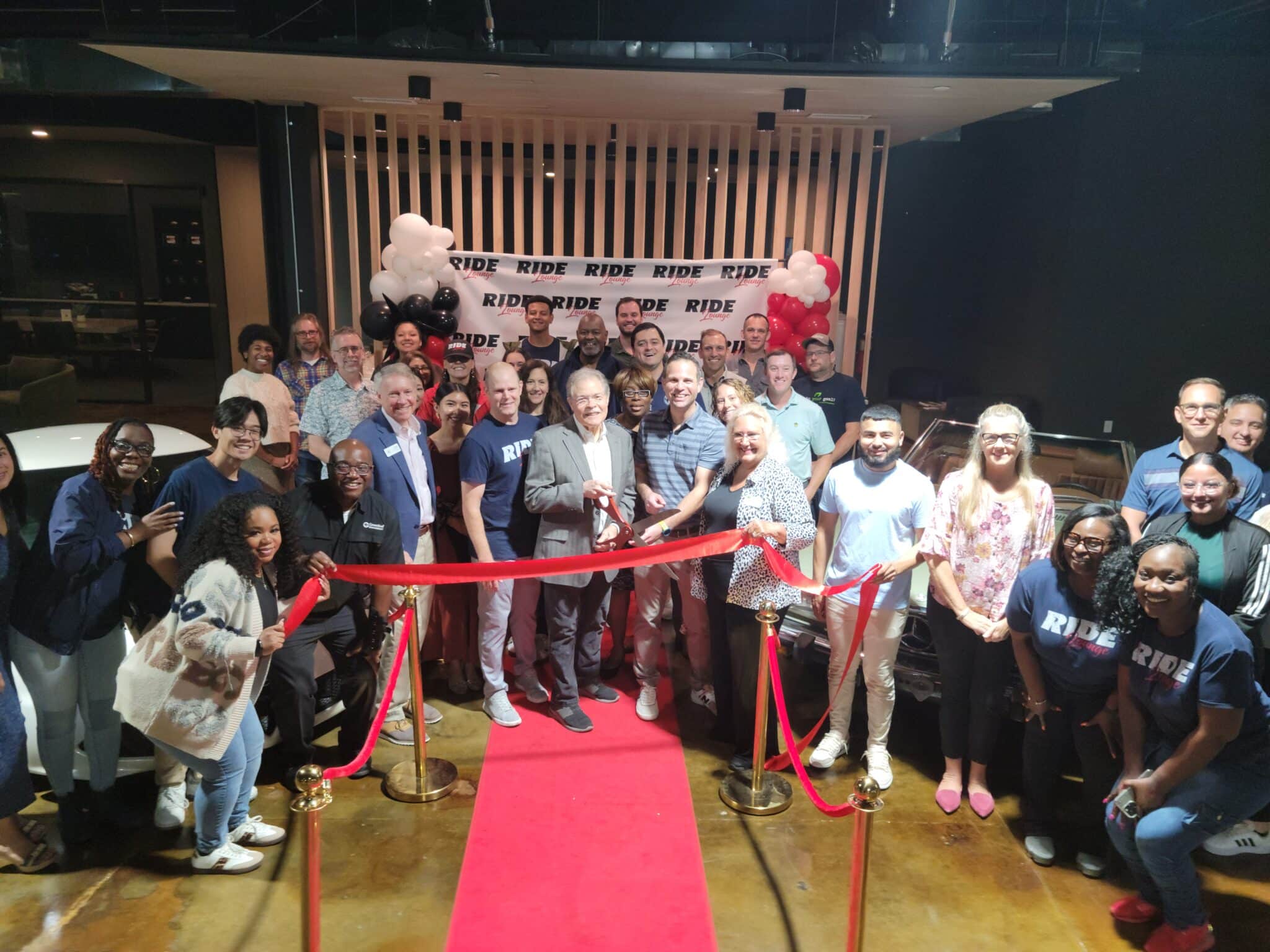
The Peachtree Corners Business Association and the City of Peachtree Corners officially welcomed Ride Lounge, one of the city’s newest businesses, with a morning ribbon cutting ceremony on May 29.
From 9 a.m. to 10:30 a.m., members of the city and PCBA, along with members of the community, enjoyed mingling, getting to know the Ride Lounge staff and learning more about the unique company.
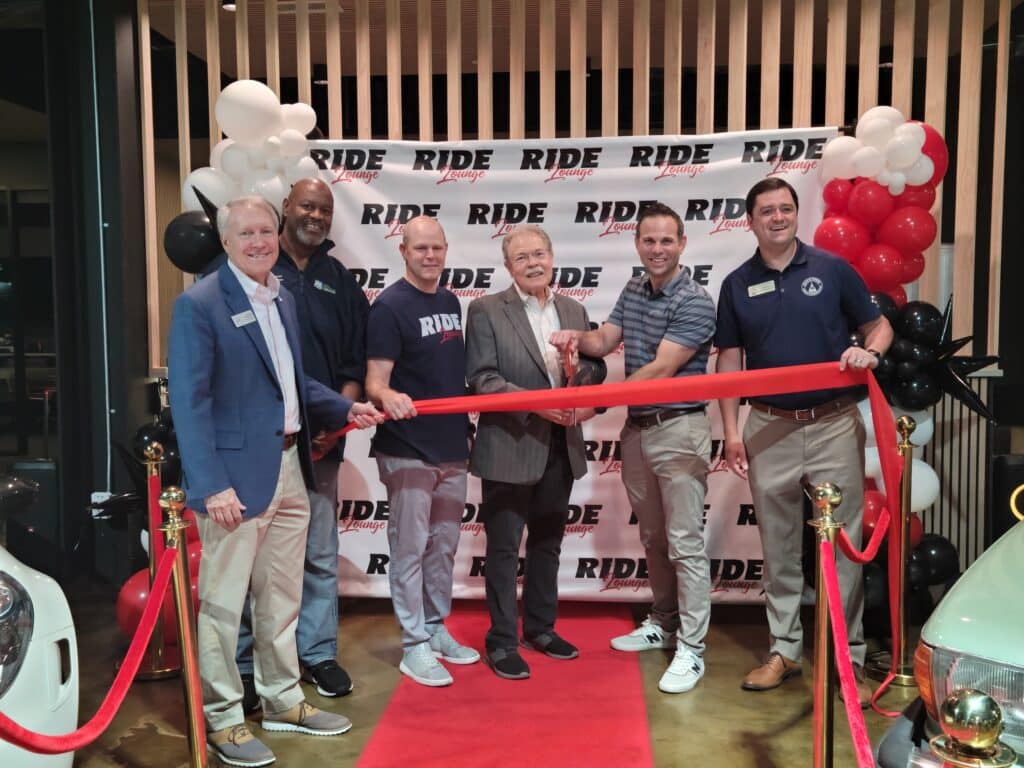
Guests also enjoyed a light breakfast spread of bagels, fresh fruit, coffee and juice and brief speeches from featured guests.
Welcoming the business
Lisa Procter from the PCBA spoke first and thanked Ride Lounge for being part of the PCBA and the Peachtree Corners community. She also recognized the collaboration between the organization and Ride Lounge in hosting the ribbon cutting.
“The PCBA was proud to coordinate with Ride Lounge and the community to make this event a success,” Procter shared.
Mayor Mike Mason followed Procter in addressing the crowd and talked about the state of business in Peachtree Corners and how companies like Ride Lounge help make the city a great place to live and work.
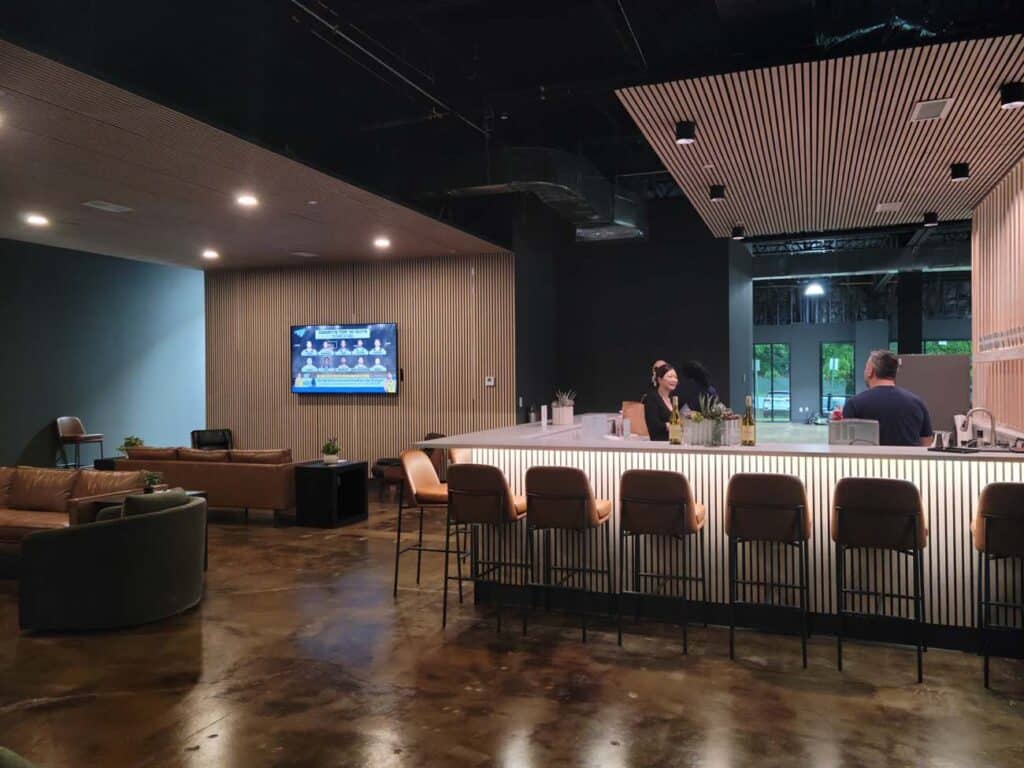
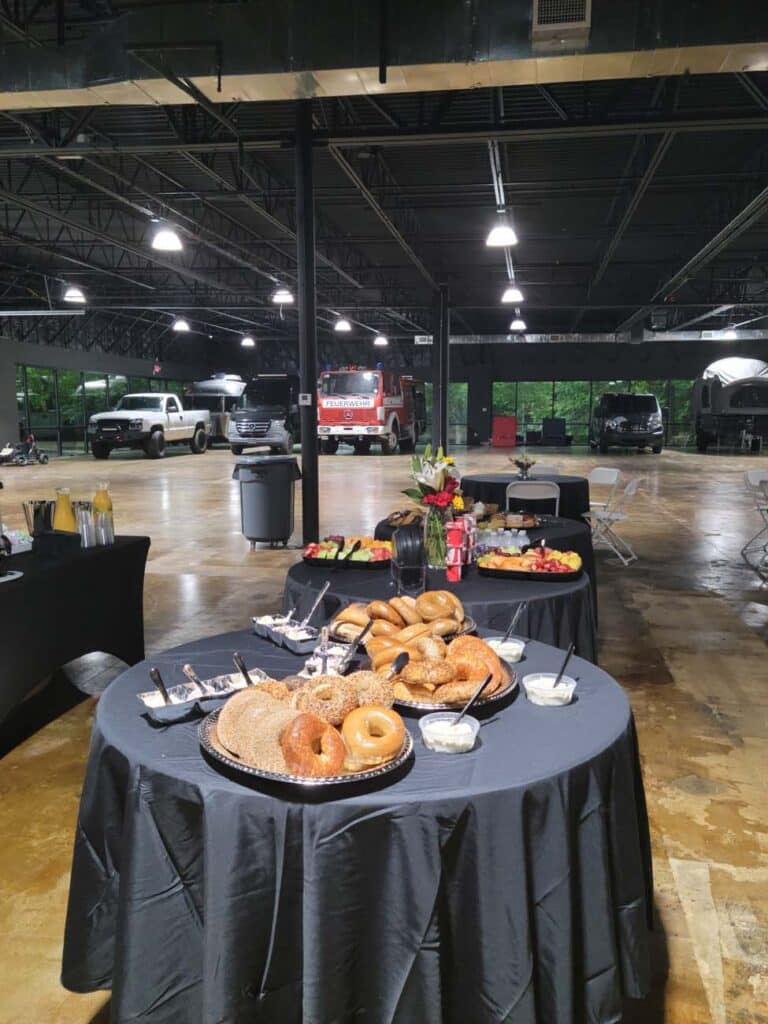
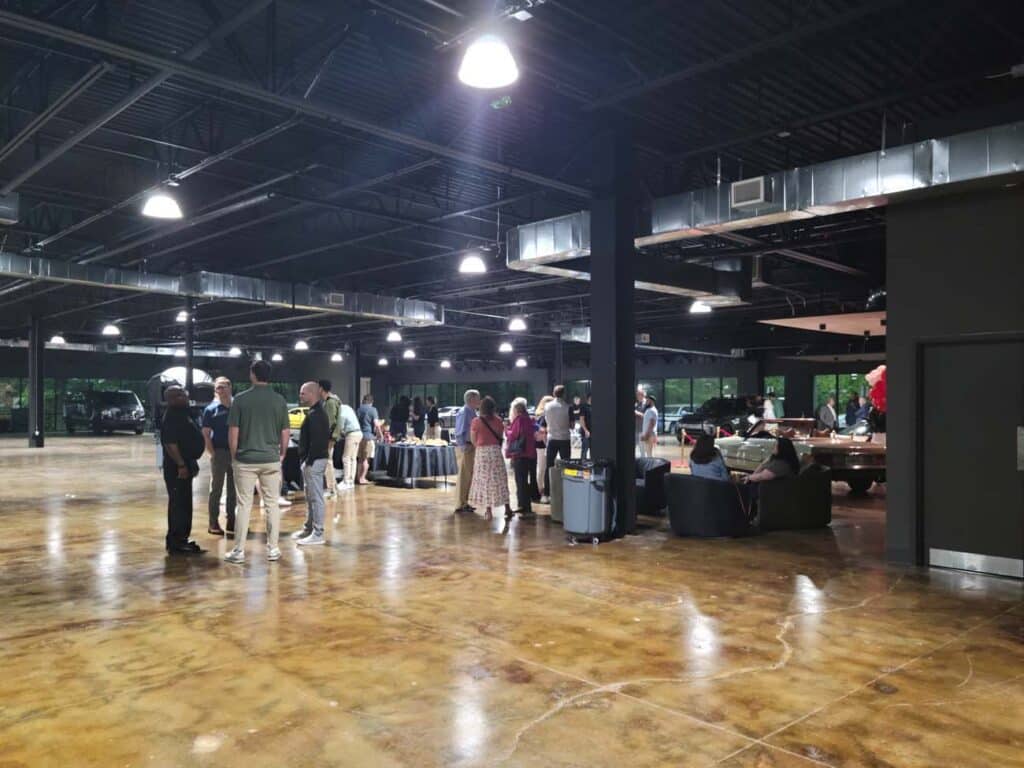
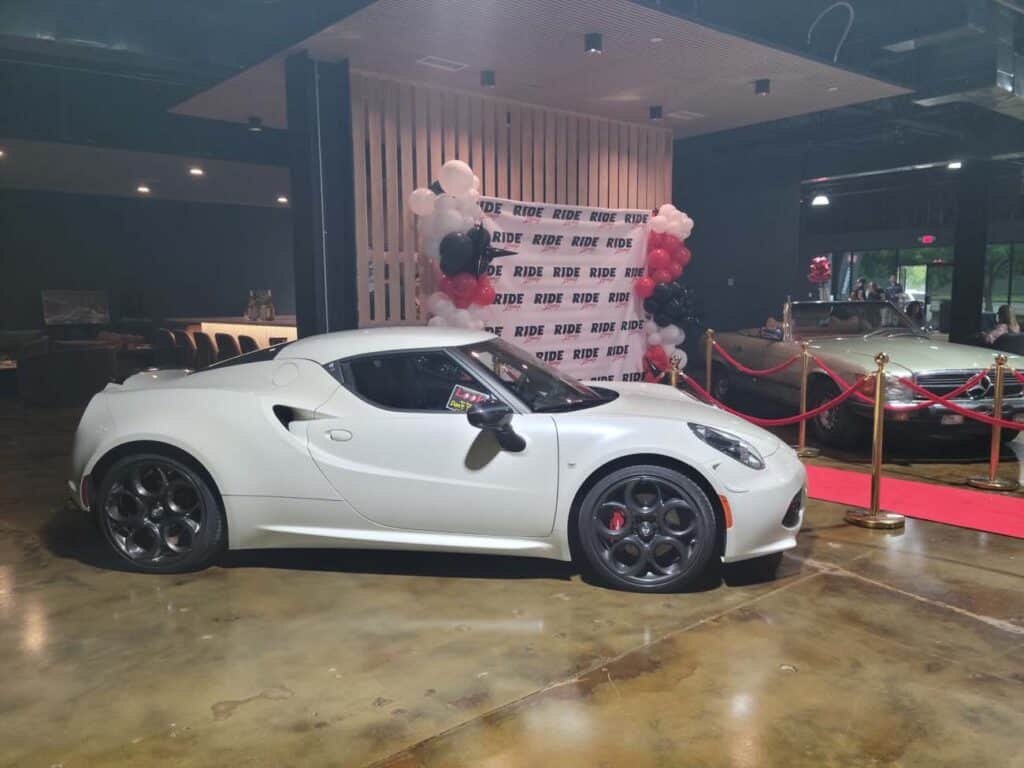
Dave Codrea and Josh Friedensohn, founders of Ride Lounge, then thanked everyone for coming and shared a little about the company and their vision.
The cutting of the ribbon and photos followed the brief speeches. Afterwards, the crowd was invited to tour the space and spend more time chatting and networking.
About Ride Lounge
The Ride Lounge is more than a car storage facility, it’s a place that celebrates car culture; where car enthusiasts can meet to discuss their passion and show off their vehicles.
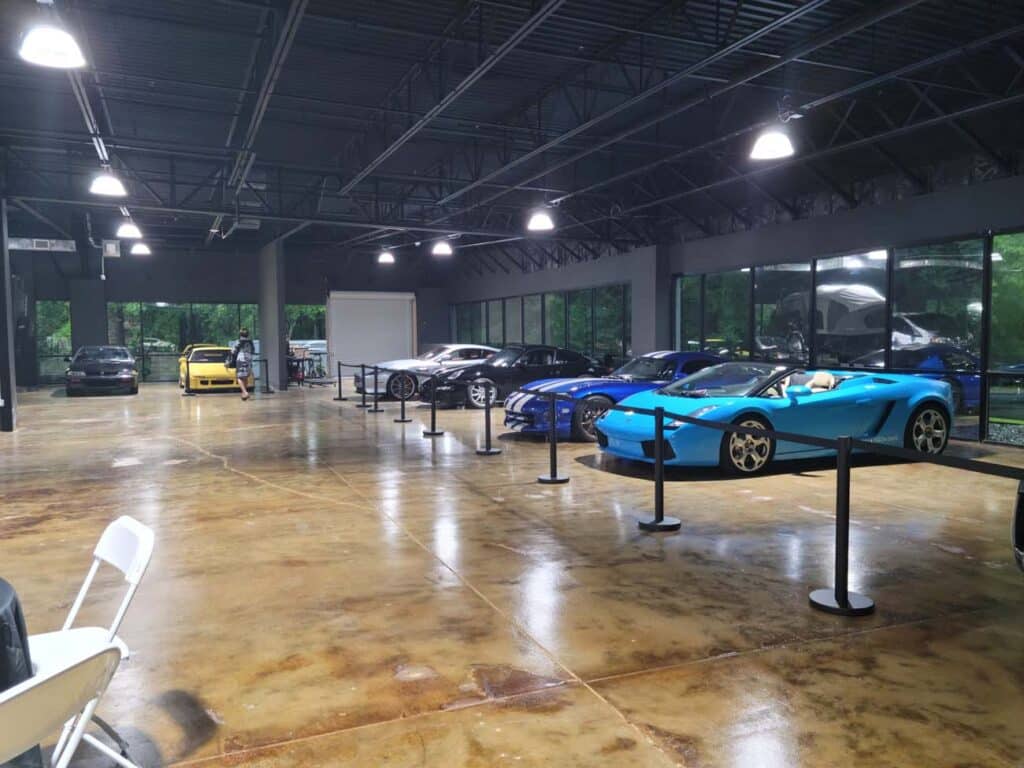
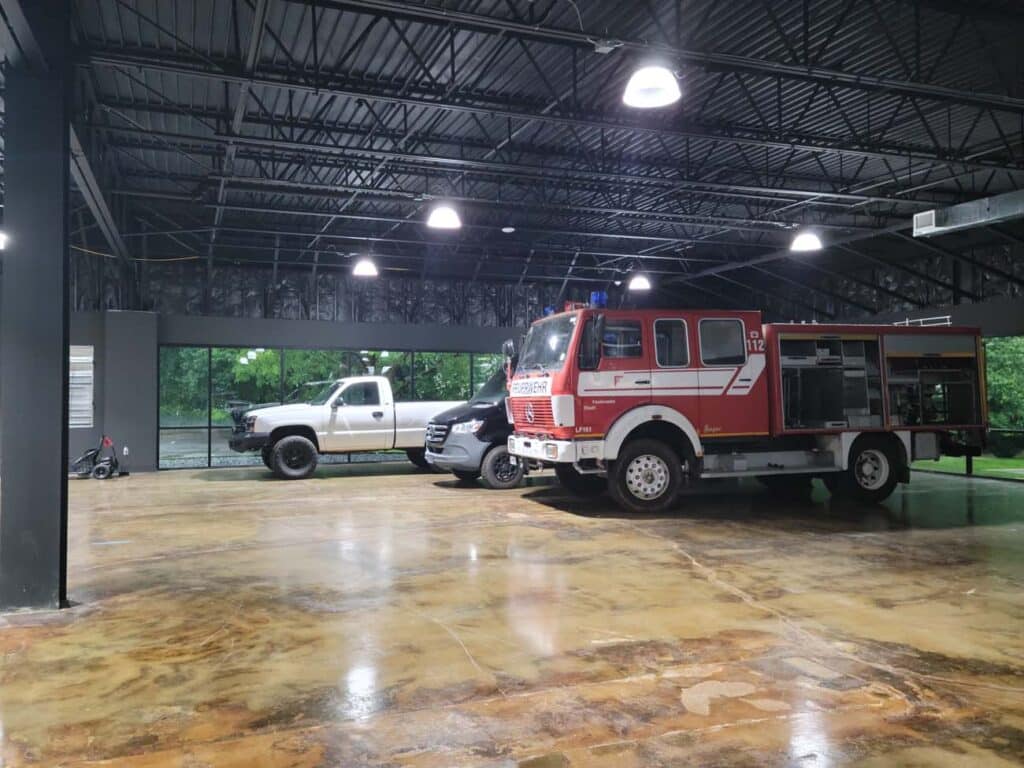
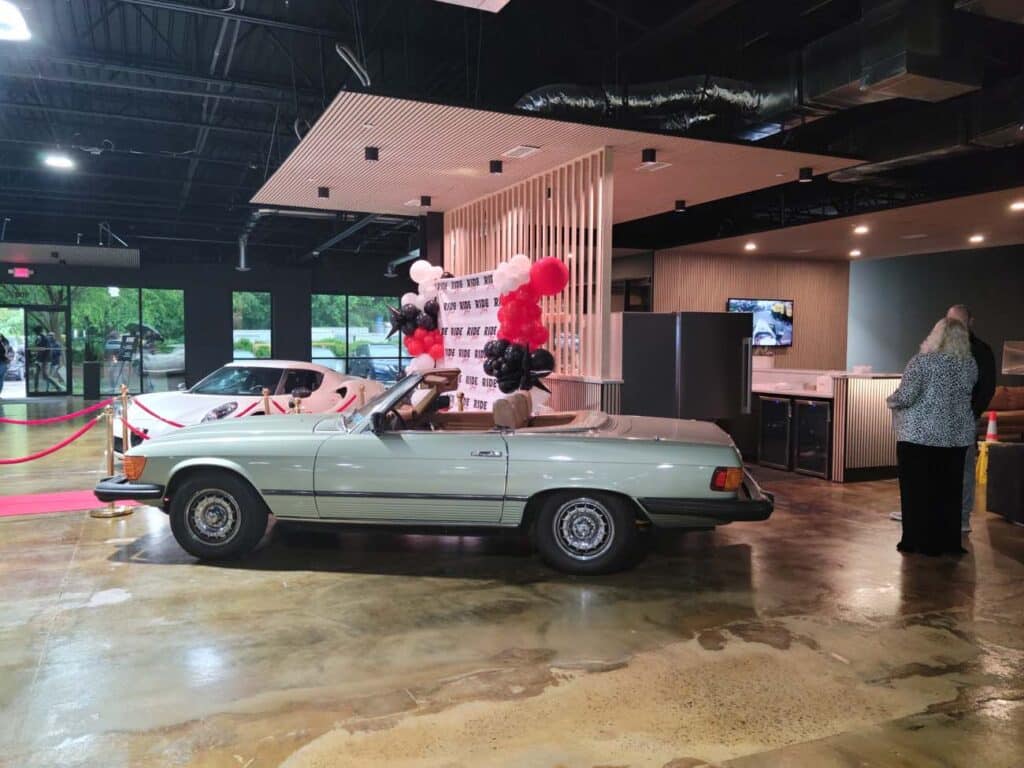
Founders Dave and Josh wanted to create a welcoming community that people would trust to store their vehicles, but that would also offer a club-like atmosphere and host fun, car-centered events that the whole family could enjoy.
Ride Lounge’s 20,300-square-foot facility is comprised of 58 parking spaces with the potential to include car lifts in certain areas. There are cozy seating areas, a meeting space and kitchen area so members can hang out, relax and talk cars.

Designed for cars that are driven and enjoyed by families, Ride Lounge has room to hold up to 400 people for special events and activities.
To learn more about Ride Lounge, visit ride-lounge.com.
For more about the PCBA, visit peachtreecornersba.com.
Related
Business
Music Matters Productions Expands Peachtree Corners Headquarters
Published
2 weeks agoon
May 21, 2025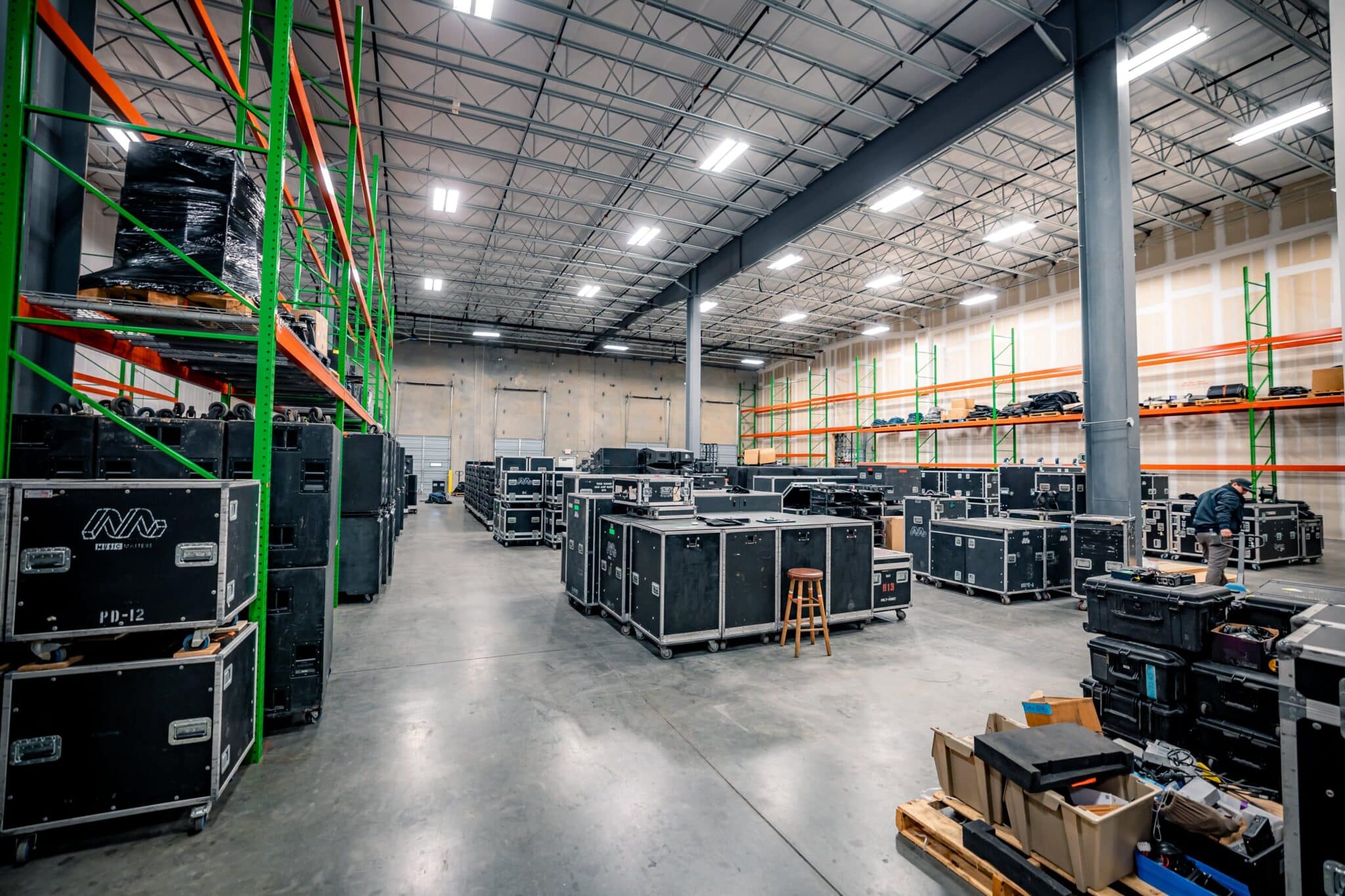
Company adds 20,000 square feet to meet growing demand
Music Matters Productions (MMP), a premier provider of audio, lighting, video, staging and rigging solutions, has expanded its metro Atlanta headquarters, increasing the total warehouse footprint from 40,000 to 60,000 square feet.
In addition, MMP has opened a second 10,000-square-foot building directly across the street to house its growing corporate production division.
The expansion comes in response to increased demand across touring, festival and corporate markets, as well as the continued growth of MMP’s high-end gear inventory. With a fully dedicated shop for each department, including audio, lighting, video, rigging and staging, the new layout provides more space for show prep, pre-rigging and crew coordination, allowing for even more efficient load-ins and streamlined execution.
New features
The rigging department now features a new mobile motor hoist test stand, allowing for in-house motor certification, a service that’s now available to external clients in the production community.
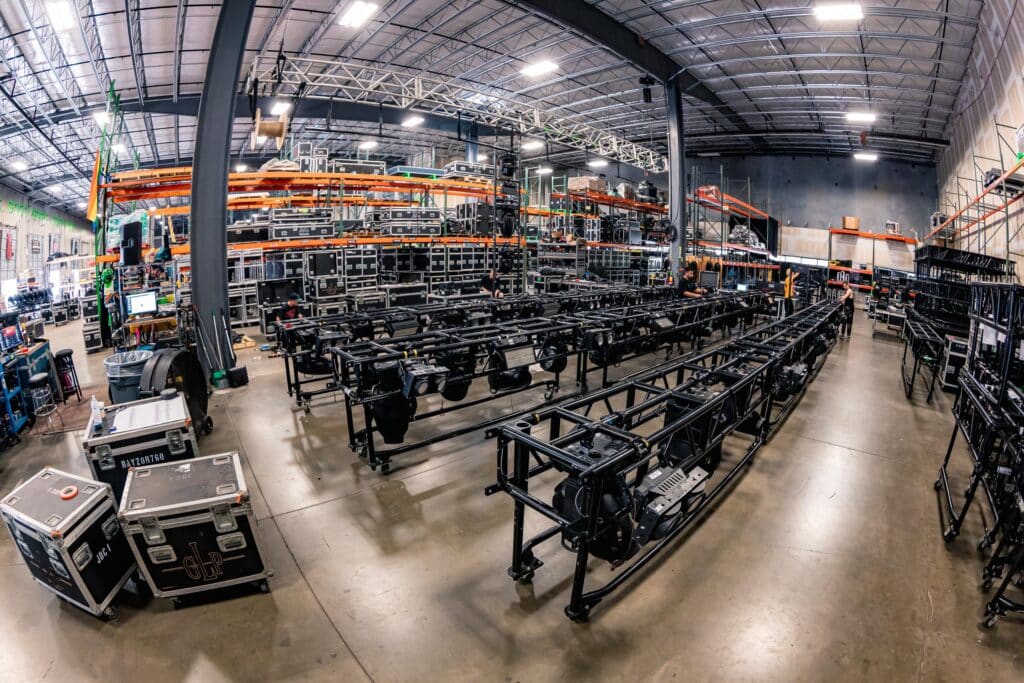
Five new truck bays were added in the process, as well, bringing the total number of bays to 17 — an important upgrade for MMP’s fleet and the increasing number of shows moving through the warehouse each week.
“This growth is a direct reflection of the work our team puts in and the trust our clients place in us,” said Aaron Soriero, owner of Music Matters Productions. “We didn’t expand for the sake of being bigger, we expanded because we needed the space to do the job right. More room means tighter prep, faster turns and better support for our clients.”
Expanding operations
The expanded warehouse and building across the street include additional offices, mixed-use areas and a dedicated repairs department, giving the team more capacity to prep, collaborate, QC and scale for increasingly complex events — both corporate and entertainment.
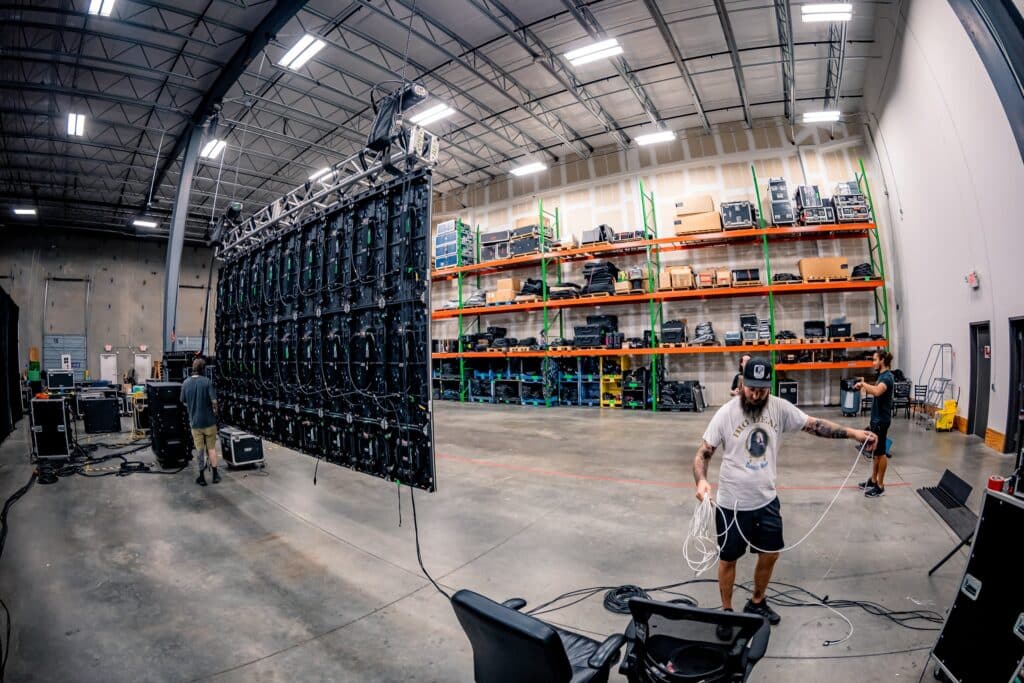
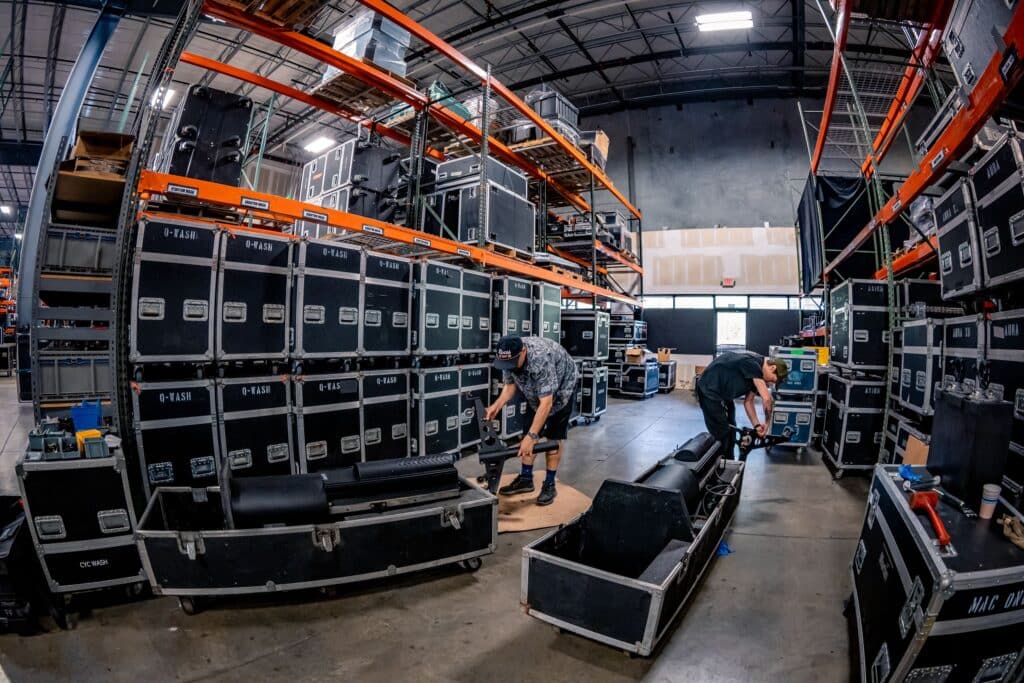
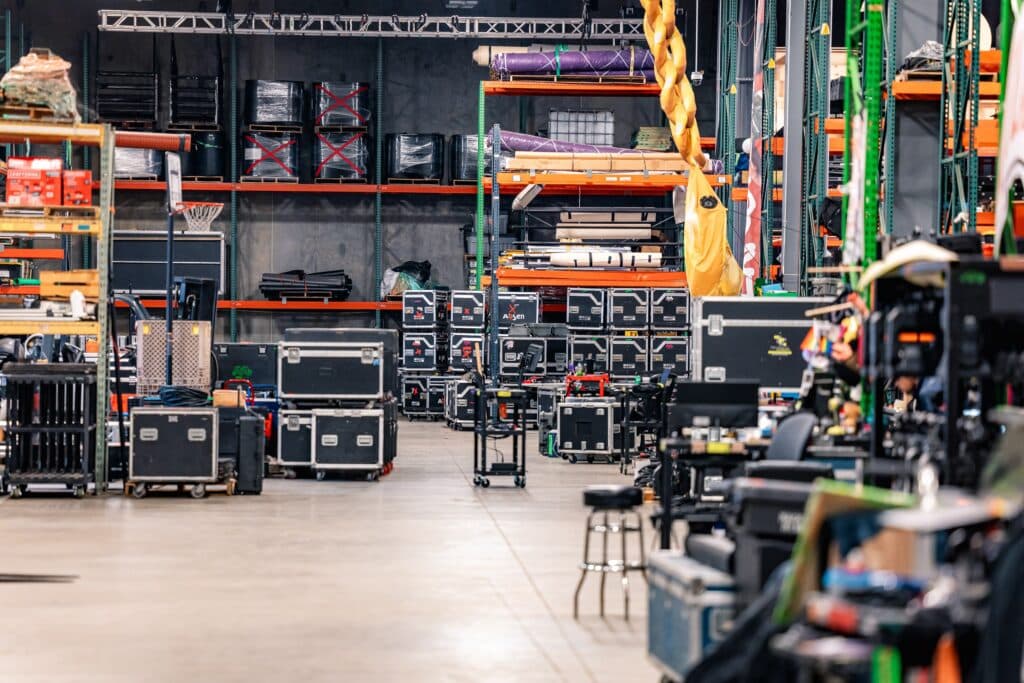
With a reputation built on reliable gear, experienced crews and an enhanced client experience, MMP continues to solidify its role as a go-to production partner for events of every size and setting — whether it’s a beachside festival, a stadium tour, brand activation or a high-stakes corporate show.
About Music Matters Productions
Music Matters Productions is a full-service live event production company based in Peachtree Corners, Georgia, providing industry-leading audio, lighting, video, rigging and staging solutions for tours, festivals, brand activations and corporate events across the country.
Known for its high-end inventory, seasoned crew and deep dedication to doing the job right, MMP supports hundreds of productions each year and is trusted by clients nationwide.
For more information, visit mmp-atl.com.
Related
Business
From Boardrooms to the Himalayas: Vandana’s Journey to Purpose and Growing with Intention [Podcast]
Published
2 weeks agoon
May 19, 2025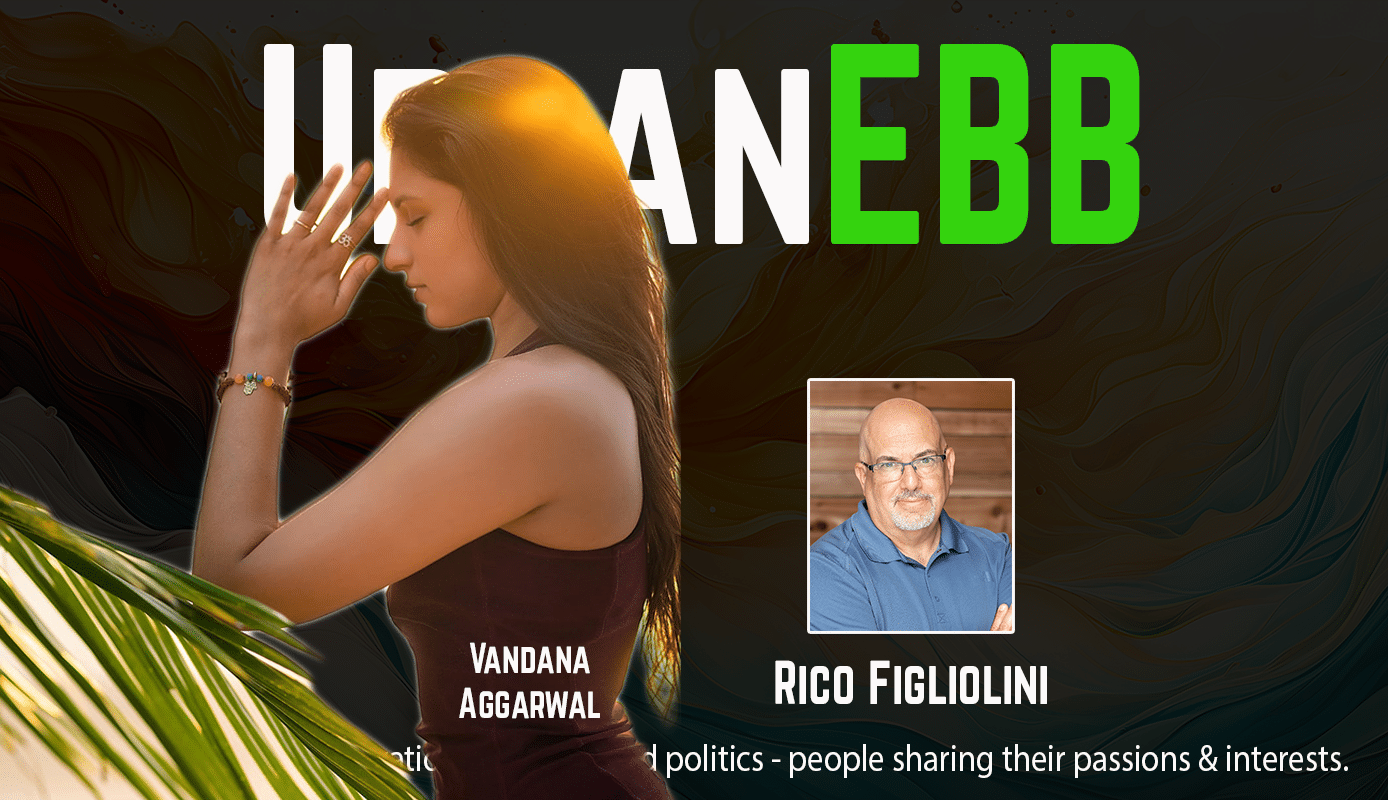
How one family blends operational clarity, conscious leadership, and community-driven values to grow their business — together.
In this episode of UrbanEbb, host Rico Figliolini chats with Vandana Aggarwal, VP of Operations at Aggarwal Real Estate, about the winding road from global consulting to family-run commercial real estate in Norcross, Georgia. With honesty, warmth and insight, V shares how she went from working 80-hour weeks in corporate strategy to rediscovering clarity in the mountains of India — ultimately helping transform her family’s business into a community-driven real estate firm managing over 50 shopping centers.
The conversation weaves together themes of leadership, legacy, operational excellence and the transformative power of both AI and yoga. It’s a story about clarity, courage and conscious growth — both in business and in life. This is another episode you won’t want to miss.
Episode Highlights
- Why Vandana left a high-powered consulting career to join her family business
- How hiking Kilimanjaro and studying yoga in the Himalayas changed her leadership mindset
- The operational overhaul she brought to Aggarwal Real Estate to support growth
- What it’s like working side-by-side with your dad, siblings, and 700+ tenants
- How the company rebranded with intention and built a mission around “building communities as a community”
- Where AI is reshaping real estate—from lease drafting to property management—and where it still can’t compete with people
- Leadership succession planning with siblings at the helm
- The importance of clarity, calm, and conscious growth in both business and life
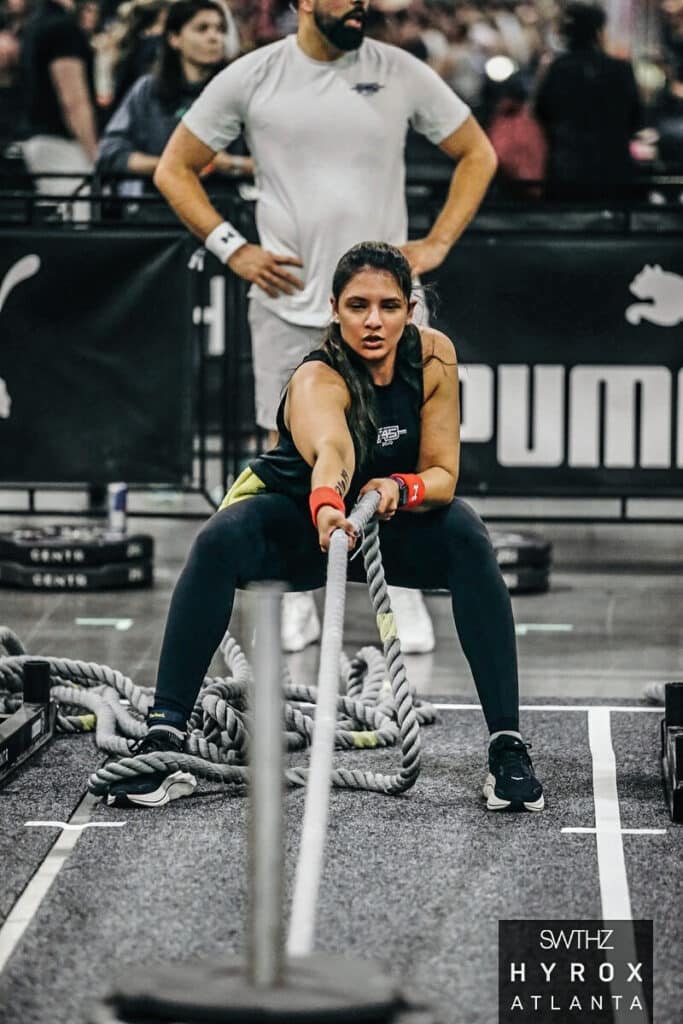


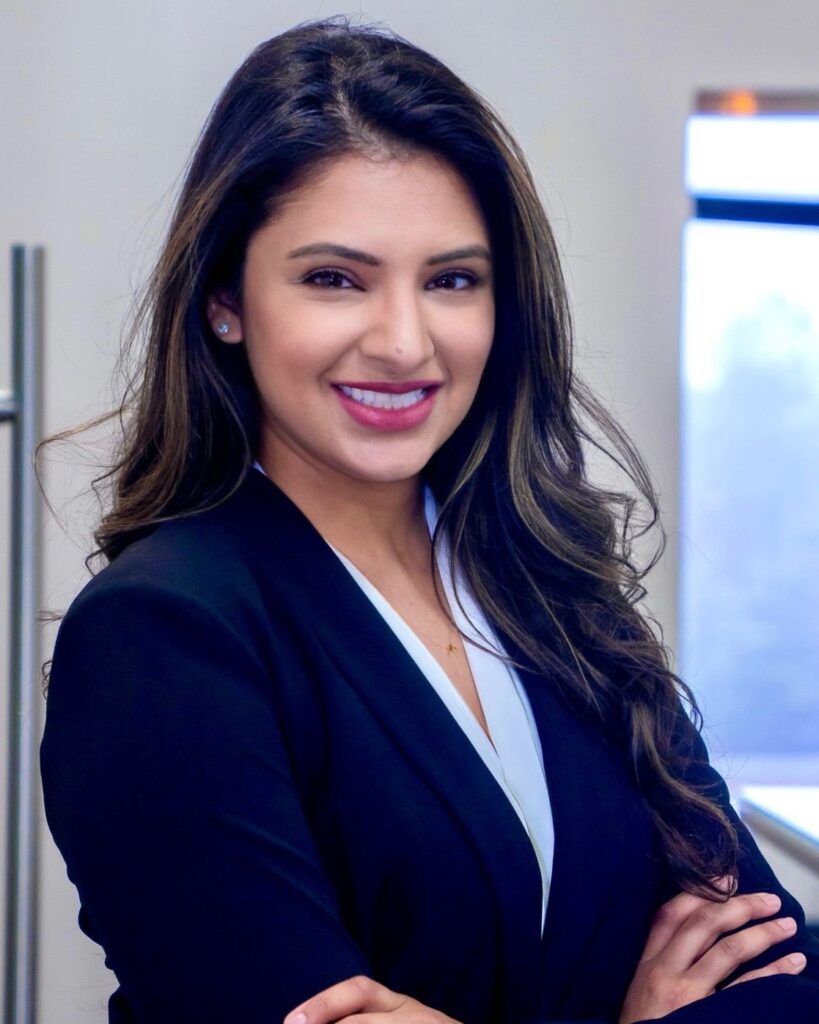




About Vandana Aggarwal
Vandana Aggarwal is the Vice President of Operations at Aggarwal Real Estate, her family’s commercial real estate investment and management firm. She brings a unique blend of strategic insight and operational excellence, shaped by her early career as a consultant at A.T. Kearney, where she advised Fortune 100 to 500 companies. A graduate of Georgia Tech, she also took a transformative detour from the corporate world to spend a year in India teaching yoga—an experience that continues to influence her leadership style today. At the core of her work is a deep commitment to family and a passion for building strong, connected communities.
Timestamp:
00:00:00 – Introduction and sponsors: Vox Pop Uli & EV Remodeling
00:03:12 – From Georgia Tech to global consulting
00:04:23 – Leading strategy for Fortune 500 companies
00:06:11 – The role of vision alignment at the C-suite
00:08:01 – Sabbatical becomes family business overhaul
00:09:35 – Bringing operational excellence to a growing real estate firm
00:12:02 – A year of yoga, nature, and healing in India
00:17:03 – Hiking Kilimanjaro, testing limits, and expanding self-trust
00:18:52 – Navigating family dynamics inside a business
00:21:56 – Planning for leadership transition: siblings, strategy, succession
00:24:06 – Rebranding the business: from American Management to Aggarwal Real Estate
00:26:33 – Where AI fits (and doesn’t) in real estate operations
00:30:04 – Legal, leasing, HR, and marketing efficiency with tech
00:31:01 – Community-focused retail and experiential shopping centers
00:32:00 – Reflections on AI, journalism, and digital trust
00:32:57 – Closing thoughts
Podcast Transcript
00:00:00 – Rico Figliolini
Hi, everyone. This is Rico Figliolini, host of UrbanEbb. This podcast comes out of the city of Peachtree Corners, and we have a special guest today. And if I don’t mess up the name, it’s Vandana Aggarwal.
00:00:15 – Vandana Aggarwal
Absolutely. You can call me V, Rico.
00:00:15 – Rico Figliolini
I’m going to call you V, trust me. And I’m Rico Figliolini, so a bit of a long name there. But V is VP of Operations of Aggarwal Real Estate here, based in Peachtree Corners? No, Norcross.
00:00:30 – Vandana Aggarwal
In Norcross, yeah. Norcross, Georgia.
00:00:32 – Rico Figliolini
Yeah, yeah. Just off 85, and?
00:00:34 – Vandana Aggarwal
Jimmy Carter.
00:00:35 – Rico Figliolini
And Jimmy Carter.
00:00:36 – Vandana Aggarwal
We’re completing each other’s sentences already.
00:00:39 – Rico Figliolini
But where are we doing this? We’re doing this from one of our great sponsors, one of our two great sponsors, Vox Pop Uli. Was this tastefully obnoxious? Let me tell you, I asked them to do a corner cut for us, and this is perfect. So they have the Moxie logo and stuff. So they’re branding, right? Same way they can brand your stuff. They’ll put your logo on anything. They’ve done, I think, 6,000 vehicle wraps. They’ve done garments, obviously. They could do one-offs or they could do 1,000. They do trade show booths, wraps, everything. So anything you need a logo on, think of what object you want it on. They’ll figure it out for you. And if you’re doing, let’s say, 5,000 mailers and you want that database customized for each postcard, they could do that also. It’s called data. I forget what it’s called, but they can do that. They can work the data into the printing as well. So all customizable. Check them out, voxpopuli.com. Now, getting to something we were talking about, hands-on stuff, which is this also. This can’t just be done by machines, right? Although machines, you still need people. But EV Remodeling Inc., they are a remodeling company. They can do design to build. They can do whole house renovation. They can create your deck, your backyard gazebo. They can put a bathroom, kitchen, anything you want. EV Remodeling Inc. is owned by Eli and his family. Lives in Peachtree Corners. It’s based out of our city. They’ve done, I think, over 250 homes recently. So check them out, evremodelinginc.com. And I want to thank both of them for being great sponsors of ours. So, it’s always a long stretch doing that, but I’m glad to have you, V.
00:02:22 – Vandana Aggarwal
I’m happy to be here. Thank you for inviting me onto your podcast. Excited to chat with you.
00:02:25 – Rico Figliolini
Yeah, no, this is cool. Well, you know, I met you, where did I meet you at? I think it was the chamber.
00:02:30 – Vandana Aggarwal
Yeah, the Southwest Gwinnett Chamber event.
00:02:32 – Rico Figliolini
Yeah, and we were talking a bit, and I was like, damn, you know, I had my father owned a business, and he wanted his kids to be in it. None of us, none of us could go into that business. It’s a little difficult, different industry. It was a hard industry, plus my father was very patriarchal, very over-demanding. God bless him. He mellowed in age. But when you were telling me about your family, I mean, your father, your mother, your sister, your brother, and you, I mean, all in it. It’s amazing.
00:02:55 – Vandana Aggarwal
We’re all together. We’re the modern-day Brady Bunch.
00:03:03 – Rico Figliolini
I love it. Yes, that’s exactly it. But, let’s start a little bit. I mean, you were telling me, I mean, you came from a consulting world. You came where you were actually being paid a lot more than you’re being paid right now, actually.
00:03:12 – Vandana Aggarwal
I told my father he couldn’t afford me when he recruited me out. So I graduated from Georgia Tech in 2007. I actually did join his company right out of college for two years, learned a lot about the company. He actually had me go through a rotation in every department of the company to learn more about what we did, how we operated. And I think very quickly, it was also 2008-9 with a recession. But I was also very interested to learn how big companies operate. How can you take a small company at that time? We were much smaller than we are today and really understand how do you go from this, which is where everyone starts, right? As a new company to get to be one of the largest in the nation, in the world and see how they operate, how they grew it from, you know, a mom and pop business to this global enterprise. Consulting was a natural transition to learn about multiple companies, multiple industries. So transitioned into AT Kearney, which has now been rebranded as Kearney, and out of their Chicago office. So I was there for seven to eight years, almost eight years.
00:04:23 – Rico Figliolini
Entry-level position you got in?
00:04:24 – Vandana Aggarwal
Yeah, I went in as an analyst. The good thing with that experience was by the time I left, I was a senior manager with Kearney. I worked across 17 different companies in those eight years. So I got to experience how CPG companies, retail companies, transportation, IT, you name it, I’ve done it. In terms of the different types of industries I got to work with, worked with a lot of Fortune 100 to 500 companies at the C-suite level. So we were coming up with all kinds of strategy projects such as new market entries, mergers and acquisitions. A lot of what I ended up specializing in in those seven years was operational efficiency and growth strategy. So it was an amazing, I’m grateful for that learning experience, the you know the caliber of minds that you work with. You also get to experience what the C-suite looks like. How does the very top operate and then it goes from the top down right? So it is very much led at this very top leadership and you see how companies change in their culture the way they operate based on how the top is designed.
00:05:38 – Rico Figliolini
So did you see good and bad at the top?
00:05:41 – Vandana Aggarwal
Absolutely. And I’m not going to name names. But you learn a lot when you see how your CEO and your C-suite right below them, the culture they’re bringing into a company and their vision and their goals if they’re aligned, unaligned. Anyone that at the very top have different viewpoints of where the company has had it is where companies start to break apart, lose revenue, lose their you know people, which is very important.
00:06:11 – Rico Figliolini
Where did you see the pain point then? What was the common denominator I guess of those?
00:06:18 – Vandana Aggarwal
There’s no one common denominator, but if I had to kind of narrow in, it comes down to what is our five-year, ten-year trajectory? Where are we headed? As large companies grow, you’re not just in one industry. You’re not just doing retail shopping centers. You’re investing in all kinds of properties just to bring it back to our company. Similarly, a CPG company can make all kinds of products, so they have to decide what it is because you have to be concentrated on the right places. If you have a leadership team that is in alignment of what that ultimate goal is, right, then you have clear strategies and, you know, metrics you’re measuring your success against. So that was a big thing that I learned. Also just, you know, seeing how great leaders operate, right? Some of the best in the nation today, I got to be in the room with them and just to see how they lead is very important.
00:07:14 – Rico Figliolini
Did you see any family dynamics in any of those businesses?
00:07:20 – Vandana Aggarwal
No. You know, there may have been like a father-son duo, but when you’re looking at the very top, I won’t say it was like all in the family, right? You know, and it also becomes the size of a company, right? You know, when you get to an international scale, you’re not always blessed that every person in your family has the right skill set and experience to fill each role on that C-suite.
00:07:46 – Rico Figliolini
I’m just thinking Trump for some reason. Every kid has a job.
00:07:51 – Vandana Aggarwal
Every kid has a job.
00:07:52 – Vandana Aggarwal
You had the accent, right?
00:07:54 – Rico Figliolini
Pretty much, I guess. So after the C-suite or expansion, you traveled a lot too, I think, right?
00:08:01 – Vandana Aggarwal
I did, yeah. So after my seven, eight years in consulting, I was reaching 30. And Shiv, my father, came to me and he said, you know, you’re doing this for a lot of outside companies. Why don’t you help us grow and bring your expertise home? And I said, look, I’ll take a sabbatical. Let me assess the company. And after that period where I took a short sabbatical to come look at how we were operating, I said, I can give you three years. I said, you can’t afford me, but I’ll give you three years of my time. And I said, I think it’ll be the right, it was the right time in the company. We were investing very heavily. We were bringing in a lot of new square footage into the company, and we weren’t designed to manage it. So we as a company, as you know, we are the investors. We have an in-house management company, an in-house leasing company. So as we acquire new properties, our team does the management for those properties in-house. We don’t provide third-party services today. And we do the leasing in-house. But at that time, when he, you know Shiv started we had one or two and now we’re at 50 shopping centers plus and other investments that we have. And there’s a very different way you operate you know and how do you how does the CEO go from being an operator to where he’s overseeing it, but he’s not into the weeds right? So he has create a system for that to happen right? You have to have standard operating processes for your property managers, your accounting team, your marketing team.
00:09:35 – Rico Figliolini
And you quite didn’t have that before.
00:09:37 – Vandana Aggarwal
We didn’t, no. And, you know, and I think that’s why he wanted to bring me in is because my strength is operations and I love it. I love going into messy places and cleaning them up.
00:09:49 – Rico Figliolini
Is that what you did when you were a consultant?
00:09:51 – Vandana Aggarwal
A lot of what I was concentrating on at the end of my consulting career, yes. So I did a lot of operational efficiency work. So we’d go in, assess the way companies were designed. And we’d interview hundreds of team members to understand what their role is. You know, what are they responsible for? How are they delivering? What are they measuring for success? And then we’d redesign the way they did that based on, again, bottom line, what are your ultimate goals for the company?
00:10:21 – Rico Figliolini
So you had to understand that before you got to that point. And you’re not making the decisions, the C-level.
00:10:29 – Vandana Aggarwal
Present, right? And similarly even with Shiv, when I first joined, I said, look, this is how I think we need to redesign the company from a bottoms-up perspective based on ultimately our goal of growth, doubling, tripling in size over the next ten years. And I think this is where the father dynamic came in. I guess he trusted me. And he said, do it. He just said, do it. And it was beautiful because right when you’re with large companies, it’s a lot of time before you get. Those decisions made and that trust, right? And so it was great. And he said, yeah, just put it into place.
00:11:07 – Rico Figliolini
See, that’s a great dad, actually. Some dads would be like, I don’t know about that daughter or son or whatever.
00:11:16 – Vandana Aggarwal
It did take time, though, like to ultimately, he was in the operation so heavily. And, you know, until today, I’m still like, step up, step up. Like, I need you to not get into the weeds. Like I think at that time we had tenants calling him, maintenance guys calling him. Like every little and big problem would go through his cell phone. I said, you’re too smart and you’re such a good investor. This is not your skill set. You shouldn’t be managing this. You need to bring people on who are expertise in this area. And I said, you need to be focused on like the larger plan.
00:11:51 – Rico Figliolini
This way you can grow it better.
00:11:51 – Vandana Aggarwal
Which I think has been very successful over the last eight years I’ve been with him now.
00:11:57 – Rico Figliolini
So before you got to him, though, you were traveling a bit internationally as well?
00:12:02 – Vandana Aggarwal
Yeah, yeah. So this is an amazing year. I was very burnt out. By the time I left consulting, I was working 70 to 80-hour weeks, traveling Monday through Thursday, if not more than that, of the week. So I told Shiv, I was like, I’m going to take a month. I’m going to go to India, get my yoga certification. No intention to teach at the time. I just said it’d be a great one-month retreat. And I was up in the mountains like Himalayas and India in a city called Dharamshala. Beautiful place. One of my favorites in the world. And I just, I think I needed it for myself emotionally, mentally to take that break. So I turned one month into one year. I didn’t know it was going to be a year.
00:12:49 – Rico Figliolini
In that same city? In that same town?
00:12:50 – Vandana Aggarwal
Yeah, so I ended up the school that I had gotten my certification with. I asked them, I was like, do you mind if I hang around for a little while? Like very casually, I’m like, you know, I’ll pay for my room and board, but I just want to be around this group and this energy. And they said, well, if you’re going to be here, why don’t you intern? And they’re like, room and board is free if you intern. I was like, sure. You know, not thinking what it was leading to. This is like that beauty of the universe coming into play. Yeah, so I started teaching, ended up loving teaching. So then I ended up teaching the 200-hour yoga training course. And I was in Dharamshala for four months. And then I moved down to Goa, their Goa campus for another six.
00:13:30 – Rico Figliolini
Where is that? Goa?
00:13:32 – Vandana Aggarwal
Goa? It’s in southern India on their west coast. It’s a beach town. Yeah. So I had the mountains and the beach. But I’m a mountain girl. I’m a hiker. But no, it was a beautiful experience. Very different from anything I’ve done with my career, right? But I became a yoga teacher for a year.
00:13:52 – Rico Figliolini
Did that clear your head? Yoga, they say, can do that, right?
00:13:53 – Vandana Aggarwal
Yeah, it’s all the tools of yoga, right? The meditation, the breath work, really getting internal, going in, right? Just going inwards, being quiet, which we don’t have. We have a lot of noise in our life today, you know? And naturally, right? Between family life, work life, social, and then just all of the noise from everything else right? Like we’re sitting here and I can hear the cars right? So you know that difference was when I was sitting there, I could hear the ocean waves and so there’s something very healing in nature naturally. So it was the tools mixed with nature and I still think nature has a very strong healing power on us. So whenever I can, I try to get out on a mountain and by the ocean. But yeah no it was it was a beautiful experience but it did bring a level of calmness into the way I approach things. It changes your perspective of you know at the end everything’s okay. No matter what you’re going through it’s temporary you’re, and everything that’s happening to us is happening to us for the good. We don’t know it, sometimes it seems like a bad situation in the moment, but ultimately you know, universe, God, whatever you believe in is at play to bring you something better in your life. And you just have to step back to understand what is it delivering us.
00:15:19 – Rico Figliolini
I like the way you think. My wife every once in a while would say, aren’t you upset about that? I’m like, I think come tomorrow, it won’t mean anything. There’s no point in, just relax. Not everything, two days later, it’s not as important as it seemed at that moment.
00:15:37 – Vandana Aggarwal
Yeah. And it’s not just that it’s not as important. It’s also like…
00:15:41 – Rico Figliolini
In perspective?
00:15:42 – Vandana Aggarwal
It’s, what am I gaining from this? Like, what can I gain from this? Oftentimes when, you know, a lot of things happen, yeah, like you get hurt or, you know, it’s like in relationships, right? Or if you have a bad business deal, right? It’s like, hey, how am I growing, right? And I think that’s what makes life very exciting, right? Otherwise, if you’re always living on a high, is it a high?
00:16:06 – Rico Figliolini
Yes. So I’m thinking you were a consultant for seven or eight years. 80 hours a week. And all of a sudden you’re doing yoga on the mountains of India. It’s just like, it’s almost like a movie. It’s almost like…
00:16:18 – Vandana Aggarwal
Eat, pray, love?
00:16:19 – Rico Figliolini
Yes.
00:16:20 – Vandana Aggarwal
It was my eat, pray, love moment for a year.
00:16:23 – Rico Figliolini
That’s amazing.
00:16:24 – Vandana Aggarwal
No, you meet amazing people, but I think we were meant to meet everyone that we come in interaction with on a daily basis. You naturally have a connection. There’s a universe at play, and we were meant to cross paths and learn something from each other, gain something from one another, give to the other person. And I think you just have to look at life that way.
00:16:48 – Rico Figliolini
I definitely think along that way. I mean, I definitely think each of us nudges each other in a crowd a little bit. That one nudge can set you off going in a different direction. So I totally believe in that. So you joined your dad. Yes. And you’re, so actually, even before we get there, so yoga, but what other interests have you been?
00:17:03 – Vandana Aggarwal
Yeah. So, I mean, I’m an avid hiker. I’ve done recently in the last few years, I’ve climbed Kilimanjaro. I did the Machu Picchu trail. I’ve done a few 14ers out in Colorado, but I like to test myself physically. You know, just, again, it comes down to how do we find that push within us past our comfort zone? So is this a physical inability or is it a mental constraint? So to get past that mental constraint of discomfort and then really push yourself to the next level and say, I can achieve something. It’s not going to be easy. So to me, if I’m on a hike and it’s not hard, I’m like, well, was it a hike? Like it didn’t test me, but no I think, you know.
00:17:55 – Rico Figliolini
You should do the Appalachian Trail. That’s like 2000 plus miles.
00:18:03 – Vandana Aggarwal
I know. And it is, you know, it’s not just like the hiking part. It is like living out in nature and, you know, sleeping in uncomfortable conditions. Yeah. Walking in the rain. It’s cold. I think the last day of our Kilimanjaro hike, it was negative 20 degrees up in the mountain and my eyelashes were frozen and I couldn’t feel any part of my body. And, you know, and it tested my breathing. And there is that element of push yourself to the point that it’s not your ego anymore. Like if your body’s saying stop, you have to stop as well and respect your body. But yeah, to really test yourself.
00:18:38 – Rico Figliolini
To circle all that back now, you’re back home. You’re working with your father and your family. A lot of businesses grow or die because of family. If it’s a family business, right?
00:18:52 – Vandana Aggarwal
Absolutely, yeah.
00:18:53 – Rico Figliolini
So you have your highs, your lows, your, sometimes you don’t get along. Sometimes decisions are split. People get upset with each other. So you’ve been at your highs and lows physically and mentally doing other things. Has that helped you in some ways? Not that you’re having a bad time with family. Because it sounds like you all fit just fine, like the Brady Bunch.
00:19:15 – Vandana Aggarwal
Let’s keep it that way. No, I mean, there’s multiple dynamics at play. It is a family business. My father is also my boss. My siblings are also my friends and my coworkers. And it’s about no matter how hard you try, you cannot separate those relationships. There is an interplay of all of it when you spend eight to nine hours a day together. But we all have, again, a common goal for the company. And then a common goal for our personal relationship. So when we sit down, we keep in mind that we like each other and we want to keep it that way. Like very simply put, that’s first and foremost for me especially. Even when Shiv had brought me in, he said, oh, can you manage everyone? And I said, I’ll manage everyone but my brother and sister. I said, you know, like I won’t jeopardize the relationship I have with them as a sibling by being their manager. Especially because I said that’s your job like good luck. But not just that it’s you know we all have different skill sets so I said how do I manage my brother who is a genius he’s a CPA by trade you know like I can’t tell him how to run the financials of this company like he’s supposed to teach me that right? And same way I teach him that. My sister has a master’s in marketing right? She is by far the most social, likable person you’re going to meet, and she knows how to work with people. I said, she needs to teach us that. So I think we’re lucky that each of us, and this is, I think, rare, where you have three kids and each one of them has their own skill set. That, I think, helps us stay in business and we see ourselves foreseeably into the long-term future being in business together is because we each bring something very unique to the table. Ultimately we value the relationships that we have on a personal level as a family above all else right? And then you know the element of like, how does the yoga experience a hiking experience teach us. That’s, it’s not specific to anyone’s situation, I think it’s a baseline of who you become right? The foundation. Like it teaches you patience, it teaches you again, everything is temporary so let’s not get overly attached emotionally or get upset or too joyful, even like, let’s just stay neutralized on any situation because it will end. And then the next one will come up and kind of flow with the ebbs and flows of the ocean. You, you flow with everything that comes with you, comes your way at work, at home. But yeah, I mean, we do sit down as a leadership team. I, my father and my siblings and I, and we talk about, hey, we separately do the exercise. Where are we going to be in five years? What role do we play in that journey? And thankfully, all of ours are very similar in what our goals are. And then we have different skill sets that we bring. So even as we design the future of the company in a moment where my father is not at the head of the table, we’re working on that redesign work. But it’s very conscious. It’s very intentional. Again, we all step back and say, hey, look, how do we maintain, how do we solve problems? Because like, you know, we were talking about how tomorrow we may not agree on something, a big decision. What are we investing in? Come back to, you know, right now Shiv gets to make an ultimate decision because he’s the one leader at the top. Tomorrow it’s going to be three people at the top. How do you deal?
00:23:04 – Rico Figliolini
So is there an exit plan for your dad? Well, not an exit plan.
00:23:09 – Vandana Aggarwal
Not an exit plan. He already has. I think he, you know, he’s gone from, he’s the hardest working person I know. I get that from him. We’re addicted to work.
00:23:18 – Rico Figliolini
80 hours a week.
00:23:21 – Vandana Aggarwal
We love working. You know, this company is his baby. I think I’ve adopted it at this point and we all have. But, to stay mentally sharp, to stay alive, you have to keep working. You have to keep doing something. You have to be working towards something that brings you joy and purpose. And I think, you know, he stepped back to take time towards a lot of his nonprofit work, community work that he’s very much engaged with. But he’s still at the top. He’s still running, you know, his, you know, he’s, you know, not slowing down. You know, we’re constantly growing. We’re growing this year in a large scale, which is amazing, and he’s leading that charge.
00:23:59 – Rico Figliolini
How many properties do you own?
00:24:02 – Vandana Aggarwall
Today we have 50 shopping centers and then a few other assets.
00:24:06 – Rico Figliolini
Is that like 3 million square feet or something? 4 million?
00:24:10 – Vandana Aggarwal
Yeah, over 700 tenants. But, you know, when we sat down a few years ago, we rebranded. Aggarwal Real Estate didn’t exist until two years ago. It was American Management Services. And we had a rebranding effort because we said we want the company’s name and the brand to represent who we are.
00:24:33 – Rico Figliolini
I like that, by the way.
00:24:35 – Vandana Aggarwal
Yeah, it needs to mean something. And we were also proud of what our father has achieved, right? He’s given us this beautiful life that we get to help grow upon. So we said it needs to pay homage to him. So we said, let’s make it Aggarwal Real Estate, ARE. And then as we were deciding what that vision is, we’re a family. In the company, we are a family, not just the four of us, but all of our staff, our team. We don’t, you know, we don’t look at them separate from who we are. And so we said our mission as a company is building communities as a community. And it talks about, hey, in all of the real estate work we’re doing, we try to make sure all of our properties are beautiful. Our tenants are happy. They have direct access to each of us in the company. And on top of that, as a company, we are a community within ourselves because we can’t create them until we are one. So it was very intentional to who we already were, but putting it into brand terms.
00:25:37 – Rico Figliolini
It’s amazing. All that property, tenants. Can’t imagine father tech can send text messages on all their problems, if they have any.
00:25:45 – Vandana Aggarwal
He’s a brilliant man.
00:25:45 – Rico Figliolini
You could be too possessed on that stuff. We want to be cognizant of our time together.
00:25:55 – Vandana Aggarwal
Absolutely.
00:25:57 – Rico Figliolini
So the next subject really was going to be about also AI, because everyone’s talking about AI. We were talking about that before the show started, before we started recording, which was kind of funny because V was asking me if we edit anything. And I was like, no, straight through.
00:26:11 – Vandana Aggarwal
I wanted to see if I could say a few things and then have it taken out of this conversation.
00:26:13 – Rico Figliolini
Nope. Nope. Doesn’t work that way. So, but ChatGPT, AI, that’s all. I mean, you know, could I create a bot to edit this? Probably. But there’s so many things we use in our lives. And you’ve been talking about how it would affect your business. Nevermind the consulting work you did.
00:26:33 – Vandana Aggarwal
Yeah. I mean, the consulting world is, I mean, it depends on the industry, the type of work you’re doing. In real estate, I’ve put a lot of thought behind this. There’s a lot of conversations happening across every industry, every sector, whether it’s education, automotives, real estate, et cetera. Everything’s being discussed. How is that changing the future? How do we incorporate it to be more efficient, right? Be the best in the industry that we can be or operate better. And so for me it’s again comes down to that operations element that I think about like, how do I incorporate it for a company that’s a medium-sized real estate firm today as we become a large company, a bigger player in the market. And people are very important in real estate right?
00:27:17 – Rico Figliolini
Talk about editing?
00:27:20 – Vandana Aggarwal
I was telling you, we should bring them into the podcast.
00:27:27 – Rico Figliolini
We’re going to run a little longer on this.
00:27:36 – Vandana Aggarwal
But let’s take retail shopping centers. This is brick and mortar. I did a paper actually for a large mall retailer back in my consulting days on how the title of the paper was, is brick and mortar dead? And, you know, full circle, I am fully dedicated to brick and mortar, retail, office, multifamily now. But you still need people to clean up your properties, fix your maintenance issues. We were talking about roofing, plumbing, electrical. That is hands-on work. You know, today there is, it’s going to be a long time before there’s a robot that comes in to do that. There will be. I don’t know. I do not see that in 10 years to say we’ve got roofers that are robotic drones that are going to come fix my roof problems.
00:28:24 – Rico Figliolini
Zumbas, they’re going to run around the roof or something.
00:28:26 – Vandana Aggarwal
That’s actually genius. A Zumba for my roof.
00:28:31 – Rico Figliolini
Why not? Attach it to the right thing.
00:28:33 – Vandana Aggarwal
But so those are very people-oriented roles today. Technology will advance how quickly it’s done or how well it’s done. But you’ll still need someone to operate the machinery of it and everything.
00:28:49 – Rico Figliolini
Just not as many.
00:28:50 – Vandana Aggarwal
Yeah. Construction, similarly, right?
00:28:54 – Rico Figliolini
Unless you 3D print a house. I’m sorry.
00:28:56 – Vandana Aggarwal
No, it’s true. It’s true. There’s so many options. I’m thinking 10 years now. I’m not going to have a 3D printer making the metal framing for my new construction project. You know, or installing the sheetrock, it does probably speed up the process, right? There will be machinery to help with that, a lot of AI development in that way. It’s a lot at an office administrative level, right? The speed in which you’re processing invoices, the speed in which you are, you know, getting payments taken in. Today, I would say as far back as right before COVID, we were still accepting checks for money. Now it’s all online. Like we do not accept money coming into the office, or it’s very limited to what we do, right? So that’s AI, if you think about it, right? The ability to pay online.
00:29:42 – Rico Figliolini
QuickBooks Online uses AI now, you can enable it.
00:29:47 – Vandana Aggarwal
So we’ve been using it for many years. The advancement of it has been a little bit slower, and now it’s sped up. Marketing, we were just talking about how you created a flyer on ChatGPT, was it?
00:30:00 – Rico Figliolini
I won’t talk about the student that’s helping us out here and how they use AI.
00:30:04 – Vandana Aggarwal
No, AI in school, right? But yeah, it’s an AI processor for my HR roles, right? Instead of reading 100 resumes, it’s going through the system to filter them out. Whether it’s writing contracts, I won’t lie. Legal jargon is coming out of ChatGPT today. And so it’s speeding up the way we’re doing work. But my legal team probably, and they won’t say it, should be using AI if they’re not. To help create some of this work right? So it’s like these companies are still going to be needed, but the way that they’re able to respond to us at a quicker, everything would just happen faster right? From typewriters to computers, everything.
00:30:49 – Rico Figliolini
Especially if they know that they just did a lease from you for this property in Texas, that we need three more leases done for three other places, it’s not going to be that much different, right? It’s a template.
00:31:01 – Vandana Aggarwal
It’s coming out a lot faster. Yeah, I mean the negotiations, that’s a people-to-people thing right? So I think thankfully in the real estate world we’re still going to need people. We’re still going to need buildings right? The way built, we were just talking about how a retail shopping center is no longer just for shopping. It has to be for entertainment. It has to be for bringing families in and giving them more than just, hey, go into a TJ Maxx and buy something, right? It’s like, what else are you getting when you’re at that center? Whether it’s a play space or events, we’re starting to do more events at our shopping centers. So it’s, again, serving the community.
00:31:39 – Rico Figliolini
We’re seeing that more. More of that happening. We could go on and on here.
00:31:46 – Vandana Aggarwal
Chatting with you.
00:31:46 – Rico Figliolini
Yeah, and we should probably do one on either AI in the marketplace. Or maybe a panel discussion on something similar.
00:31:51 – Vandana Aggarwal
Yeah, overall, yeah. That would be exciting.
00:31:55 – Rico Figliolini
Yeah, I think that would be cool.
00:31:56 – Vandana Aggarwal
I think it’s interesting to learn about kind of where every industry is heading. It impacts all of us.
00:32:00 – Rico Figliolini
For sure. I mean, the magazine business, I mean, it’s all like we have certain, we have AI rules. But, you know, AI is still being used to degree to research things. And to do certain things like that. You know, hopefully journalism isn’t just handed over. They do say 40% of the internet is AI written. So, which is kind of incestuous almost because it’ll just feed on itself at some point.
00:32:27 – Vandana Aggarwal
There’s a whole discussion about the validity and the trust behind digital content. In the next few years. I think it’s going to diminish.
00:32:35 – Rico Figliolini
Oh, yeah. I mean, I’m seeing videos now and it’s just like, it just looks so real. And you could not tell the difference, even voice-wise.
00:32:42 – Vandana Aggarwal
And that’s scary to think. It’s like, how do you trust what you see?
00:32:47 – Rico Figliolini
So on that note, and since this is not edited, so this is right from the beginning. So this is all true. But I want to thank everyone. I want to thank you, V, for being with me.
00:32:57 – Vandana Aggarwal
Thank you so much for having me. This was a great conversation.
00:33:01 – Rico Figliolini
It went by way faster than some of these go. So this is a great discussion. Thank you, everyone. I appreciate you for joining us. Thank you for Vox Pop Uli for the studio look and for letting us do it here, for being a sponsor and for EV Remodeling. Also, I want to thank Jeremy Pruitt behind the camera who has taken care. He’s a Paul Duke student. And it wasn’t him that I was talking about before, by the way. But all the work he’s done on the back end on this. So thank you, Jeremy. So thank you all. Thanks for being with us.
Related
Read the Digital Edition
Subscribe
Keep Up With Peachtree Corners News
Join our mailing list to receive the latest news and updates from our team.
You have Successfully Subscribed!

“Geek Culture” Shines at 2025 MomoCon

Vox-Pop-Uli Launches RED Initiative for Veterans’ Support

City Collaborates with DNR for Deer Overpopulation Solutions

The PCBA Awards $500 to Light Up The Corners at After-Hours Event

Peachtree Corners Festival Awards Debbie Mason Drama Scholarship for 2025

From Zero to Accredited: Dunwoody’s Billy Grogan on Starting a City Police Department [Podcast]

Mustache The Band Set to Play the VoxStage on June 14

The City and PCBA Welcome Ride Lounge with Ribbon Cutting Ceremony

More Than Badges: Why Community Culture Drives Great Policing [Podcast]

The City and PCBA Welcome Ride Lounge with Ribbon Cutting Ceremony

From Zero to Accredited: Dunwoody’s Billy Grogan on Starting a City Police Department [Podcast]

Mustache The Band Set to Play the VoxStage on June 14

City Collaborates with DNR for Deer Overpopulation Solutions

Peachtree Corners Festival Awards Debbie Mason Drama Scholarship for 2025

Vox-Pop-Uli Launches RED Initiative for Veterans’ Support

The PCBA Awards $500 to Light Up The Corners at After-Hours Event

Light up the Corners [Video]

Capitalist Sage: Business Leadership in Your Community [Podcast]

Cliff Bramble: A Culinary Adventure through Italy

Top 10 Brunch Places in Gwinnett County

A Hunger for Hospitality

THE CORNERS EPISODE 3 – BLAXICAN PART 1

Top 10 Indoor Things To Do This Winter

The ED Hour: What it takes to Remove Barriers from Education

Peachtree Corners Life
Topics and Categories
Trending
-
City of Peachtree Corners4 days ago
City Collaborates with DNR for Deer Overpopulation Solutions
-
Community4 days ago
Peachtree Corners Festival Awards Debbie Mason Drama Scholarship for 2025
-
Podcast1 day ago
From Zero to Accredited: Dunwoody’s Billy Grogan on Starting a City Police Department [Podcast]
-
Entertainment2 days ago
Mustache The Band Set to Play the VoxStage on June 14






